NORCAP | Global provider of expertise
Annual Report 2021

Introduction
Strengthening our ability to protect and empower people
As we put 2021 behind us, the Russian invasion of Ukraine in March has created the biggest refugee crisis in Europe since the second world war. NORCAP is among the organisations putting its know-how to use to support the growing number of people impacted by this event.
The needs created by the Ukrainian crisis are immense. At the same time, it is imperative that the global community with unwavering resolve continues to support people in need elsewhere in the world.
Our focus is on continuously improving how we as part of the global community can protect and empower people affected by conflict, disasters and more broadly climate change. With expertise in the humanitarian, development and peacebuilding sectors, we work with local, national and international partners to develop knowledge and solutions to better meet the needs of people at risk.
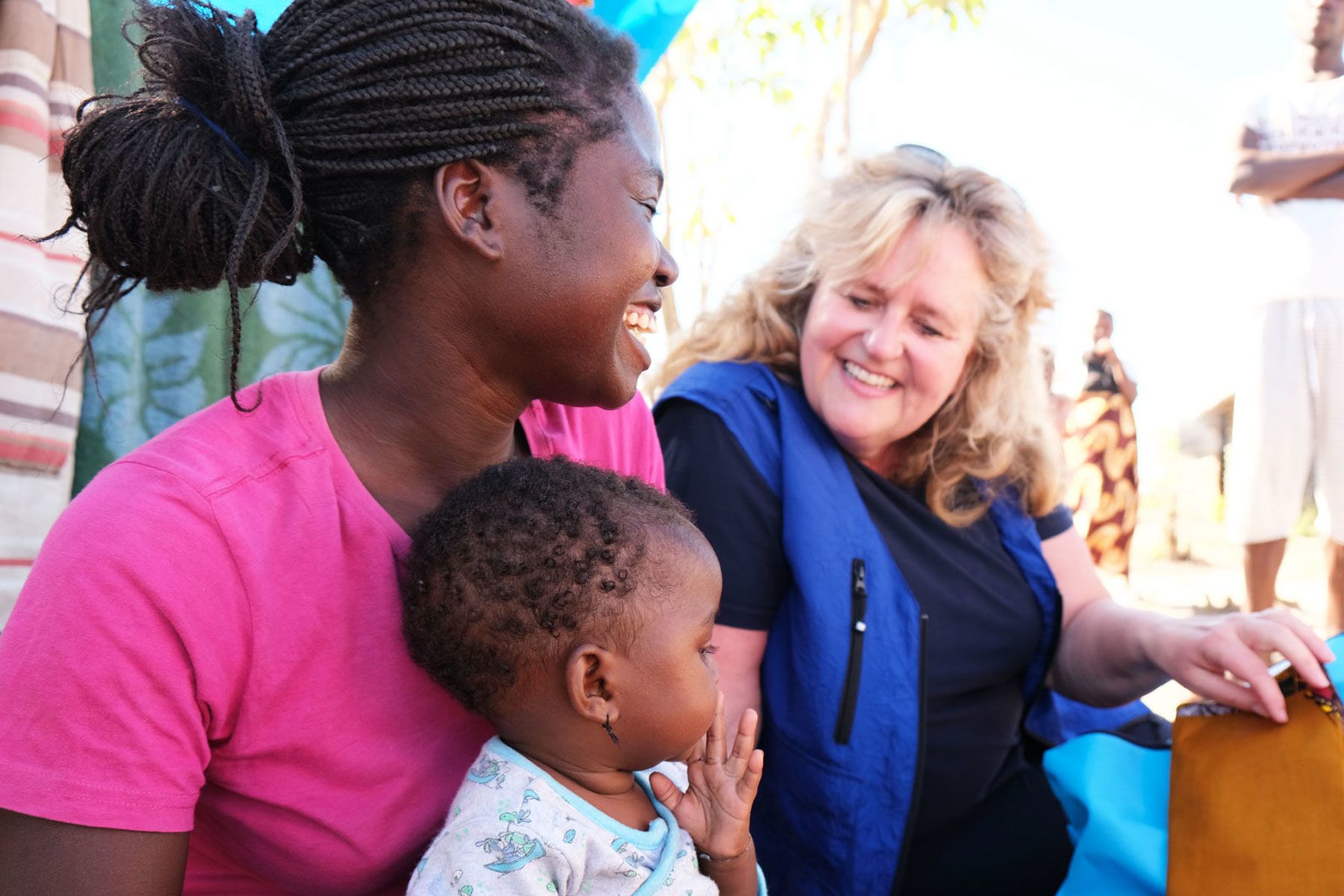
Benedicte Giæver with Maria and her daughter Carlota in Mozambique. (Photo: NORCAP/Oda Lykke Jernberg)
Benedicte Giæver with Maria and her daughter Carlota in Mozambique. (Photo: NORCAP/Oda Lykke Jernberg)
Last year, we collaborated with 50 partners in 76 countries on issues ranging from election observation and peacebuilding to gender-based violence, clean energy and cash assistance. Our partners ranged from multinational agencies such as the United Nations to regional organisations like the African Union, as well as national authorities, institutions and local civil society groups.
Climate change is a major threat to humanity and a key focus of our work. We worked with partners to mitigate its impact on vulnerable communities in Africa and the Middle East in 2021. This included supporting two regional climate centres in eastern and western Africa and seven national meteorological offices in countries such as Malawi, Tanzania and Sudan. We also developed a digital tool that provides live and easily understood weather data for East Africa, helping communities prepare for changing conditions.
Promoting human rights and democracy is central to our work. Last year we monitored 12 elections in countries including Iraq, Venezuela and Zambia, supporting national authorities in improving their electoral processes. Securing fundamental civil and political rights in countries that are not fully democratic is an increasing challenge as authoritarian regimes gain ground.
Finding new methods to improve the impact of our work is a priority. We have increasingly helped people in crises by working with our partners to provide cash or vouchers as an alternative to food, products and services. This enables people to make their own decisions on what they need. Last year we took part in 44 percent of the groups across the globe that worked to provide cash assistance, including in Nigeria, Syria and Yemen.
Read more about our cash support here
While we made progress on several fronts, 2021 also challenged the humanitarian, development and peacebuilding system. When the Taliban toppled Afghanistan's government in August, western countries imposed economic sanctions in response, causing many Afghan banks to close. Humanitarian organisations were unable to move money into the country to buy emergency supplies for people in need, putting lives at risk. The crisis shows some of the limitations of the humanitarian system, highlighting the need to find new and improved ways to protect vulnerable people.
At NORCAP we are on a mission to keep improving how the humanitarian, development and peacebuilding sectors work together to protect and empower people at risk. While the resources going to countries affected by crises continue to rise, they are outstripped by the needs. We need better cooperation across the different sectors to find sustainable solutions. Strong multilateral collaboration is vital, but it is equally important that national and local stakeholders are involved in making the decisions that impact their lives. Our role as an independent actor allows us to bring together key stakeholders from a wide range of areas. This enables us to combine different perspectives and knowledge to develop better solutions for those in need.
Benedicte Giæver,
Executive Director of NORCAP
Global Presence
NORCAP worked with 50 partners in 76 countries in 2021
Partnerships
We achieve the greatest impact through partnerships. That’s why NORCAP collaborates with a wide range of humanitarian, development and peacekeeping partners across the globe, from multinational agencies to national authorities and local organisations. We combine our knowledge, experience and resources to protect and empower people at risk.
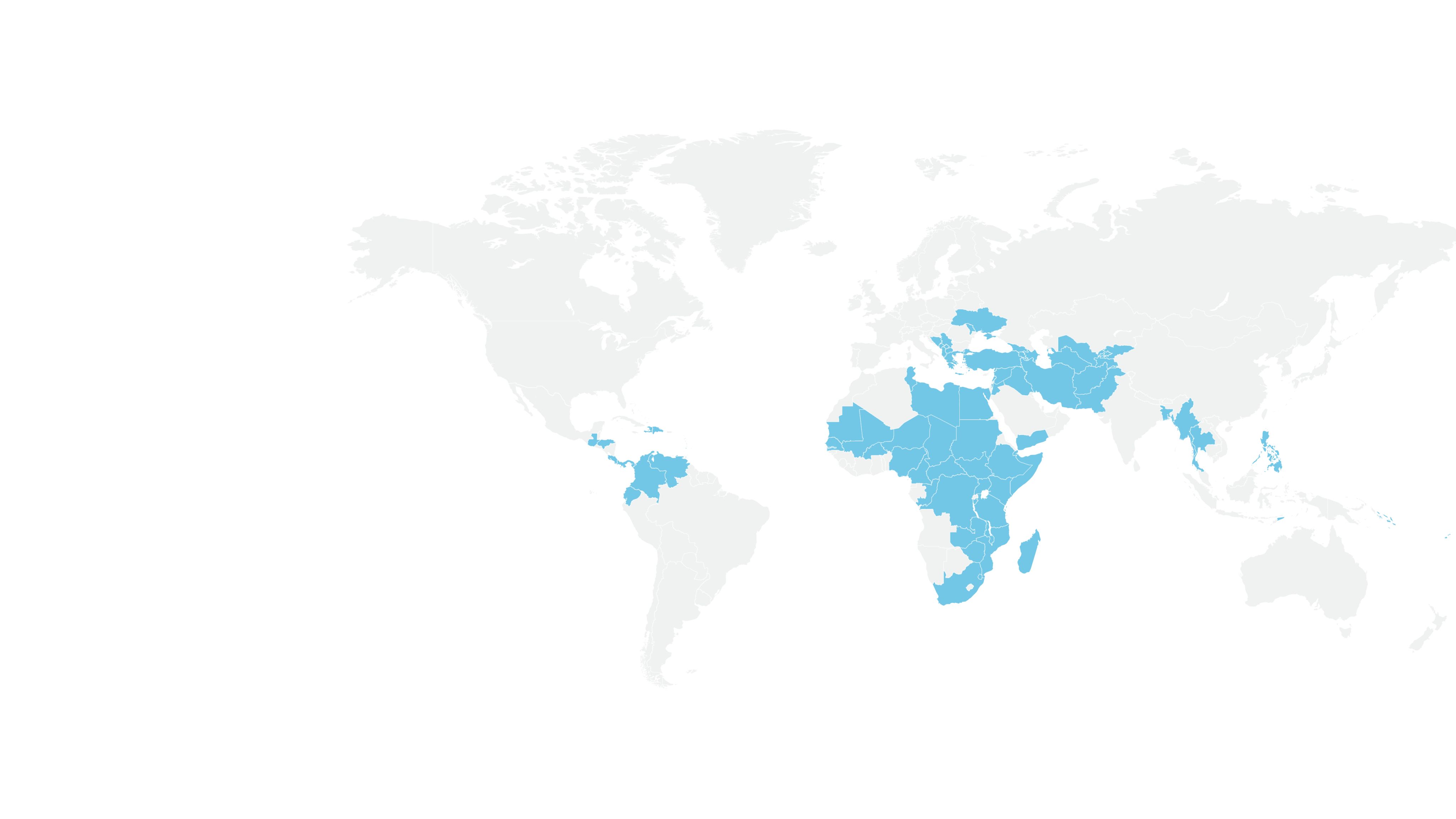
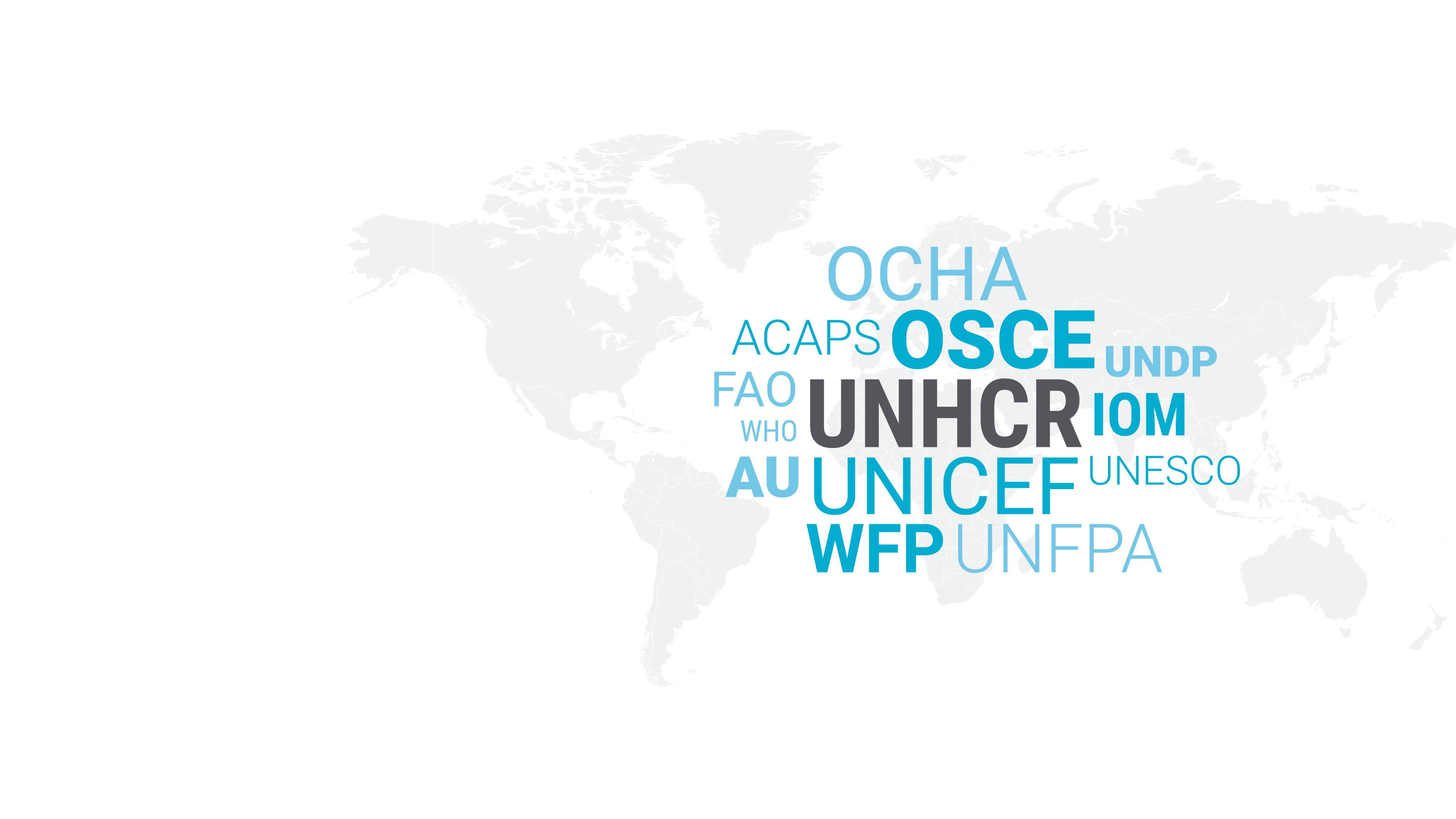
How we work
NORCAP is part of the Norwegian Refugee Council. Our vision is a world where rights are respected and people protected.
―
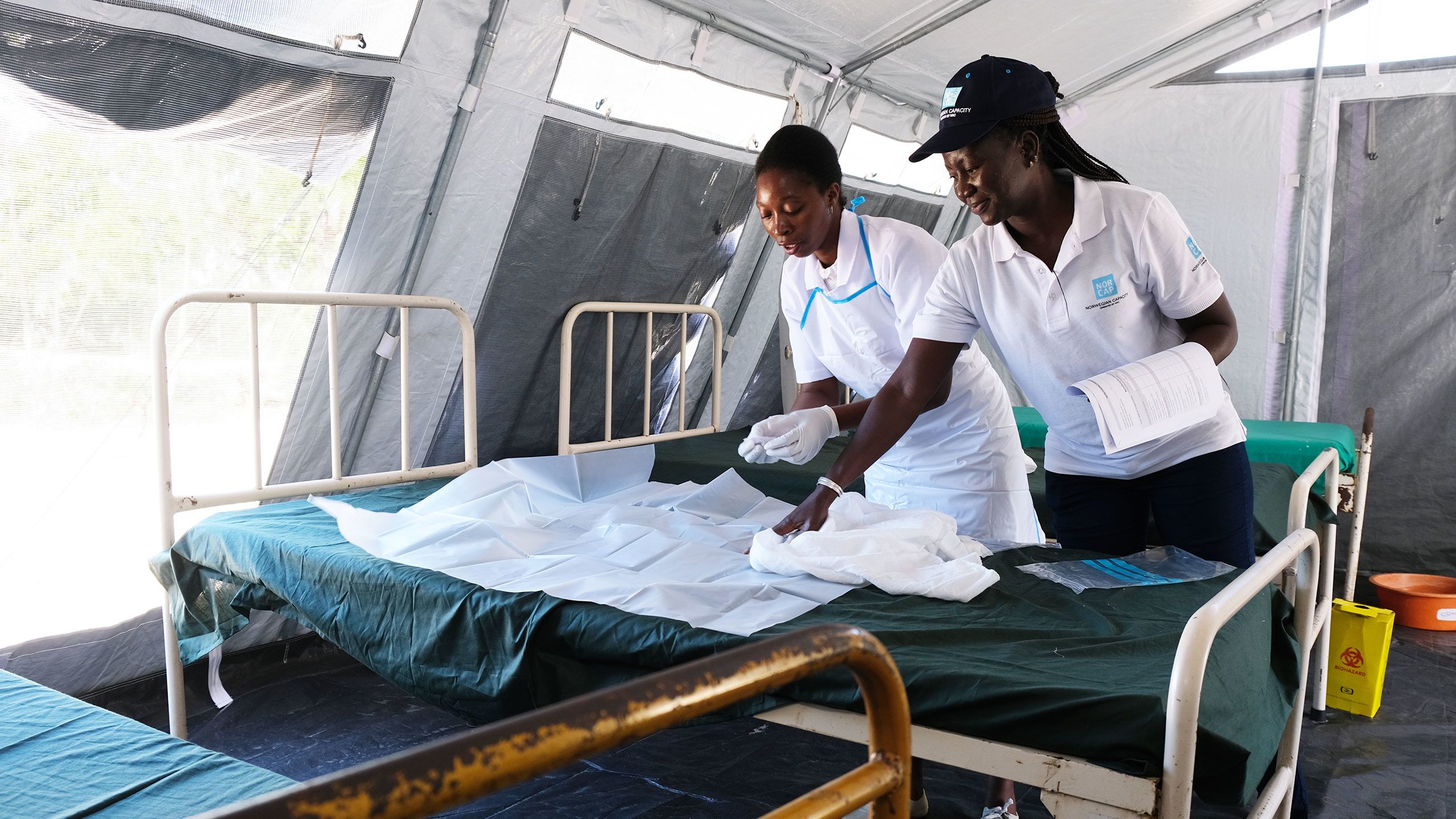
NORCAP’s mission is to improve aid to better protect and empower people affected by crises and climate change.
We do this by:
- Supporting humanitarian, development and peacebuilding initiatives that protect and empower people
- Improving impact at the global and local level through joint projects with partners and stakeholders
- Providing expertise and developing capacity that enable partners to meet the needs of people in fragile situations and crises
- Strengthening the global system that we are part of through support for leadership, coordination and policy development
- Building bridges between the humanitarian, development and peacebuilding sectors
Read more about how we work, our projects and programmes here
Work areas in 2021
Protection
Putting protection at the centre of humanitarian action
―
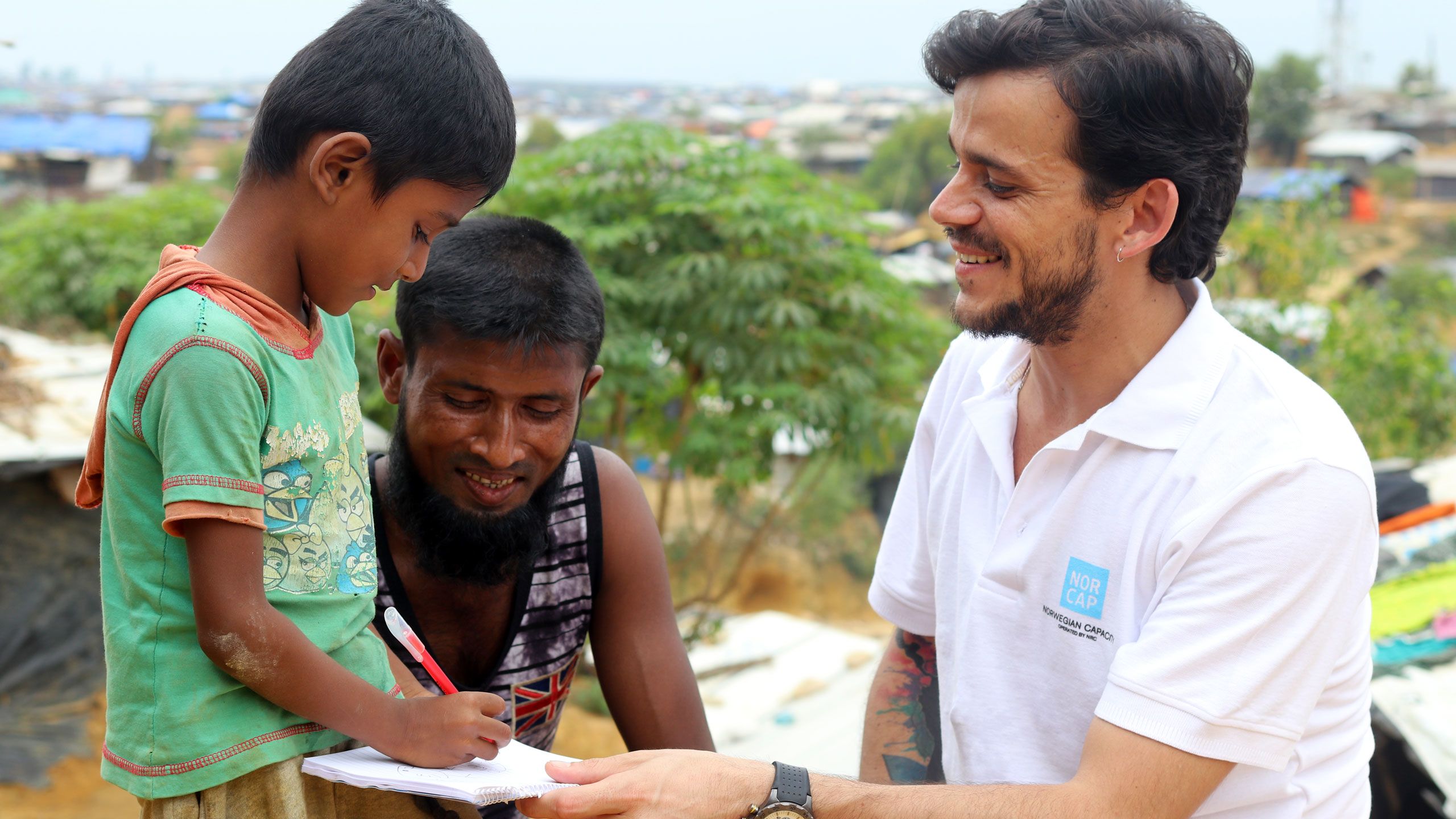
NORCAP in 2021 continued its efforts to put the protection of people at the centre of humanitarian action – a guiding principle in our work.
“We want to ensure that the protection of people is both the purpose and outcome of a humanitarian response,” says Benedicte Giæver, NORCAP’s executive director. “Protecting people needs to guide our actions from the preparedness stage through the duration of a response and beyond.”
We worked both at a systemic level and in specific crises to improve how the humanitarian sector ensures protection of vulnerable people. This included collaborating with UN agencies to identify and rectify common challenges in implementing protection mandates, supporting our partners with experienced protection experts as well as taking part in country teams and clusters working to coordinate humanitarian action.
“A key focus for us is to promote a more unified and effective approach to how the humanitarian, development and peacekeeping sectors work to protect vulnerable people,” says Benedicte. “We need better coordination and understanding between the different sectors. That’s something we are able to contribute to at NORCAP because we are seen as an independent actor. This allows us to work with and bring together key stakeholders from a wide range of areas.”
Life and rights
Last year we worked to protect people in crisis and conflict in countries including Afghanistan, Yemen and Mozambique. We were part of humanitarian country teams involved in a crisis response and provided expertise in a range of areas, such as child protection and protection against gender-based violence, trafficking and sexual exploitation and abuse. We also engaged with humanitarian partners to develop policies and laws to improve the lives of people affected by crisis.
“There are many ways a person’s life and rights can be threatened in a crisis or conflict situation,” says Benedicte. “Lack of access to food, shelter or a livelihood is a clear danger, but people also suffer abuse because of factors such as gender, ethnicity or political views. It’s critical that a humanitarian response considers all of the ways a person must be protected at all stages of the response.”
We also worked to ensure that the people affected by humanitarian action are involved in making the decisions that will impact their lives. This included establishing mechanisms for vulnerable communities to give feedback on their needs and the effectiveness of services.
Clusters
NORCAP took part in clusters working to coordinate humanitarian action. A cluster consists of groups of humanitarian organisations working on specific issues, such as the provision of food, water, shelter, logistics, healthcare and education. All clusters are responsible for upholding protection principles and preventing sexual exploitation, abuse and harassment.
“Putting protection at the centre of humanitarian work is a challenge, partly because of a lack of understanding and insufficient resources, leadership and systems for implementing protection strategies,” says Benedicte. “That’s where we can step in and both support and drive protection efforts.”
Protection through education in the Sahel
Photo: Children from Mali at a school in the Mbera camp in Mauritania. (Photo: Ismali/UNHCR)
We helped increase access to education for refugee children and youth in Africa’s Sahel region in 2021.
NORCAP has collaborated closely with the UN Refugee Agency (UNHCR) since 2019 to enhance its ability to provide education for refugees in Cameroon, Mali, Mauritania, Burkina Faso and Niger. As part of our Education in the Sahel Project, four of our experts worked to build local and national capacity in 2021.
“At the beginning of our project, UNHCR did not have sufficient resources in the Sahel to cover the education needs of refugee children,” says Maria Sellevold, NORCAP’s education manager. “Now we are able to provide education for a significant number of children and youth.”
Our experts have worked to establish permanent solutions to meet the education needs of refugee children and youth. They have strengthened the coordination of regional education initiatives and helped develop solutions to ensure more refugees get education that meets standards set by UN for quality education.
“NORCAP's support to UNHCR in the Sahel region has enabled several operations to strengthen their education response for the benefit of thousands of refugee children,” says Charlotte Berquin, UNHCR’s education officer at its regional office for West and Central Africa. “We hope this collaboration will continue to bear fruit, because the best way to ensure quality and protective education for more refugee children is to work together.”
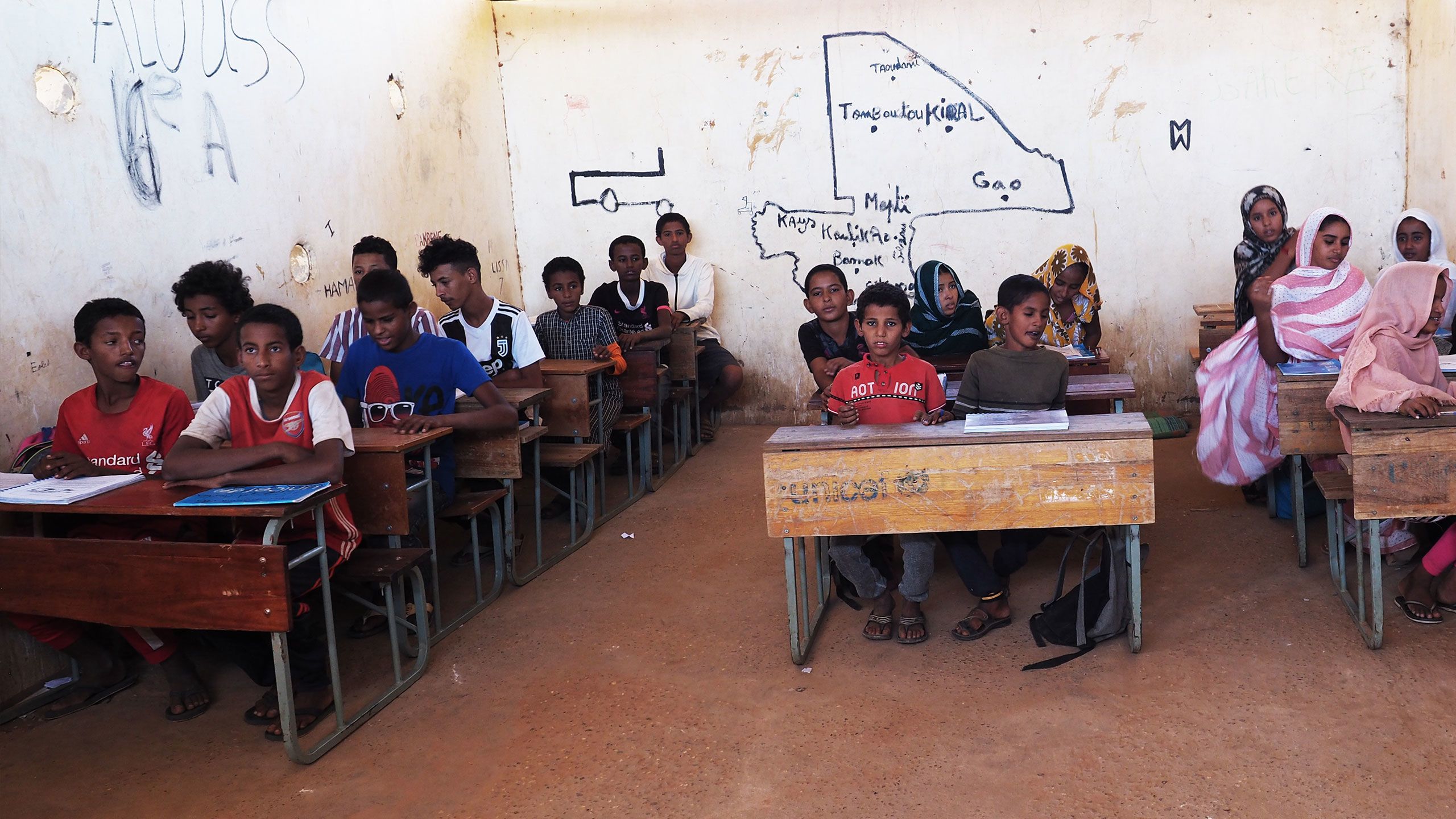
Ensuring quality education in Mauritania
While working with UNHCR in 2020 and 2021, Gabriel El Khili, a NORCAP expert, collaborated closely with local and national authorities, UN organisations and other stakeholders to ensure increased access to quality education for refugee children in Mauritania.

Gabriel handing over his work to Ismali, a national UNHCR education professional. (Photo: Maria Sellevold/NORCAP)
Nearly 70,000 refugees live in the Mbera refugee camp in the Saharan desert just across the border from the ongoing conflict in Mali. Only 30 percent of the camp’s children and 5 percent of its youth attended school, while up to 75 percent of the teachers did not have training to provide education according to the needs of the children.
“Gabriel developed a training programme for teachers and school management for Mbera,” says Maria. “He also established a connectivity centre in the camp that offers digital learning for teachers and youth – both for the refugees and the host community. His work has been an important step in lowering the number of out-of-school children as well as strengthening the quality of education provided.”
Sustainable solutions
Gabriel also developed an initial strategy for Mauritania’s education ministry and its partners intended to better integrate refugee children into the country’s education system and society at large. The strategy addresses the main obstacles to refugee children’s access to education, including language barriers, and has largely been accepted by both the ministry and in-country partners.
“The model proposed in the strategy aims to keep the Malian curriculum in French while at the same time reinforcing the official Arabic language of Mauritania,” says Gabriel. “This means that while all the science and maths subjects will be taught in French, the social science subjects will be taught in Arabic. This will address both academic and social challenges and give refugees more opportunities if they want to work or pursue higher education.”

Children from Mali enjoy going to school in the Mbera camp. (Photo: Maria Sellevold/NORCAP)
Partnerships for protection
Understanding the importance of education beyond acquiring the knowledge needed to pursue a future career is essential when advocating for children’s right to education.
“Looking ahead, we believe that continued close collaboration with our partners is the right approach to reach the sustainability development goal of education. Only this way, can we make sure that the expertise we offer addresses the root causes that hinder children from exercising their right to quality education,” says Maria.
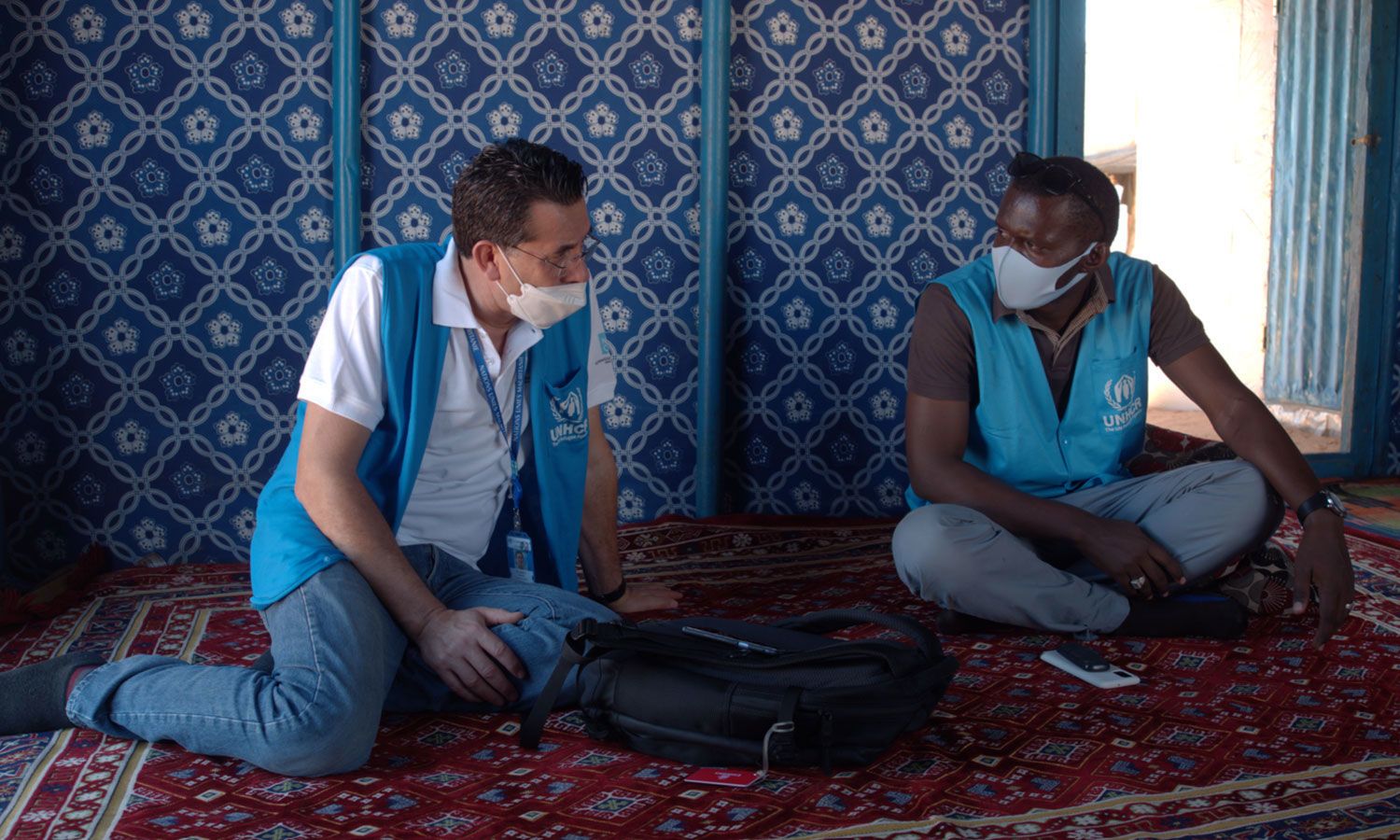
Gabriel handing over his work to Ismali, a national UNHCR education professional. (Photo: Maria Sellevold/NORCAP)
Gabriel handing over his work to Ismali, a national UNHCR education professional. (Photo: Maria Sellevold/NORCAP)
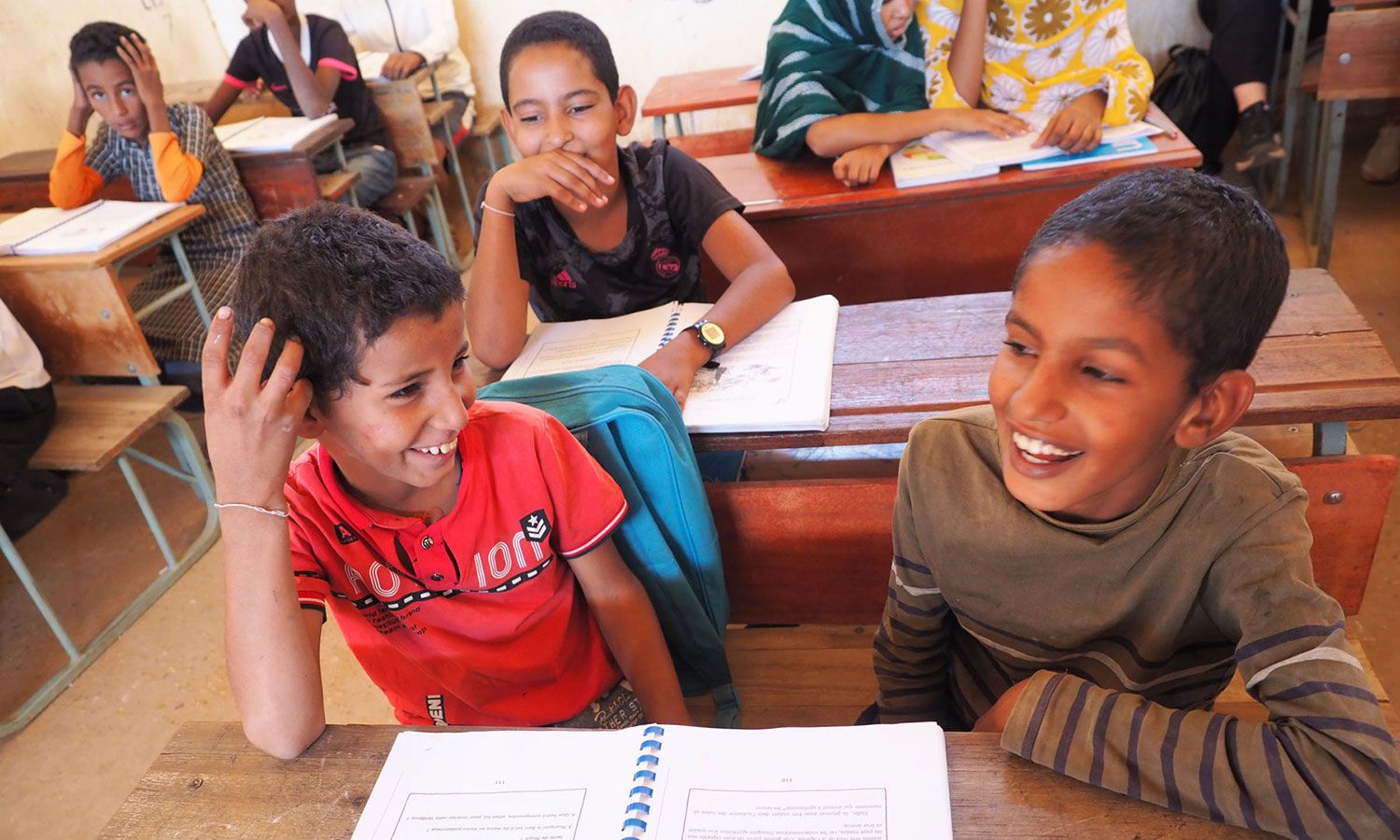
Children from Mali enjoy going to school in the Mbera camp. (Photo: Maria Sellevold/NORCAP)
Children from Mali enjoy going to school in the Mbera camp. (Photo: Maria Sellevold/NORCAP)
Building capacity
Strengthening local crisis responses
―
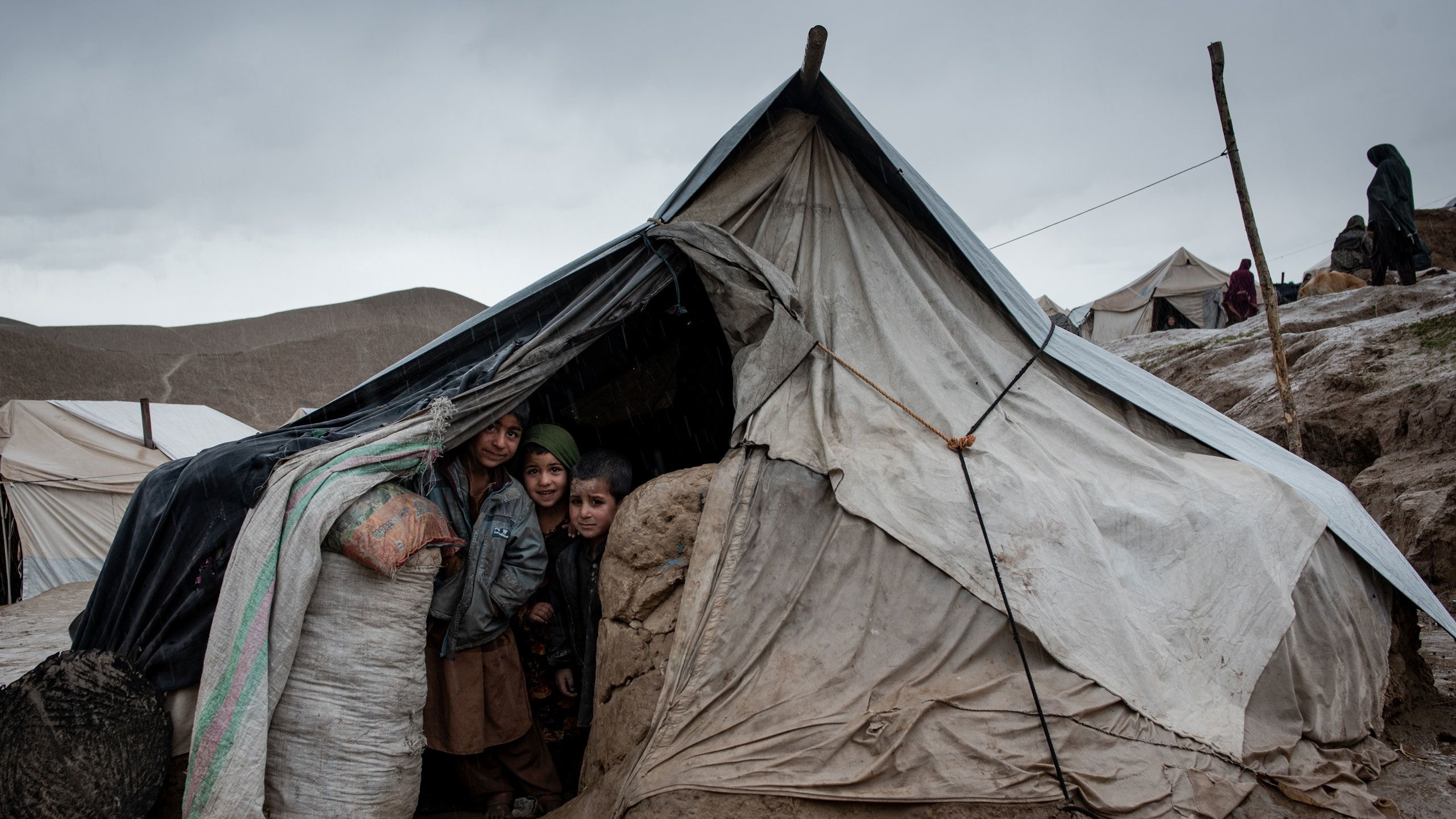
We worked with national authorities and civil society in Afghanistan, Greece and the Lake Chad region to strengthen their ability to respond to local crises in 2021.
These efforts form part of our work to promote a more localised and sustainable approach to humanitarian, development and peacebuilding efforts in vulnerable communities.
“Strengthening the ability of a vulnerable community to solve its problems is key to ensuring long-term sustainable solutions,” says Benedicte Giæver, executive director at NORCAP. “Local perspectives need to be understood, respected and fully taken into consideration when developing a response to a crisis. Local participation and leadership are also a prerequisite for success.”
NORCAP engaged with national and regional authorities, civil society and local networks to gain an in-depth understanding of each situation and how we could best contribute. We provided tools, training, mentoring and other support to bolster local communities’ self-reliance and preparedness.
“Part of what we do is to help develop and institutionalise new ways of working that will enhance local ownership and contribute to a more effective and efficient response,” says Giæver.
Our work helped strengthen authorities’ ability to protect survivors of human trafficking in Greece, promoted local participation in humanitarian work in Afghanistan and boosted the ability of local civil society to meet humanitarian needs in Africa’s Lake Chad region.
Bolstering civil society groups in the Lake Chad region
Photo: The crisis in the Sahel region has taken a heavy toll on children. Widespread insecurity has led over 5,500 schools to shut down in Mali, Burkina Faso and Niger. (Photo: Tom Peyre-Costa/NRC)
NORCAP worked in Chad, Niger and Nigeria in 2021 to strengthen the ability of local civil society to manage major humanitarian crises in the Lake Chad region.
We set up the Lake Chad Civil Society Project in 2017 to support local organisations in meeting the needs of their communities. This includes providing advice and training in a range of areas from organisational development and finance to gender issues and the monitoring and evaluation of crisis response work. We aim to expand the project to Cameroon.
“We worked with local organisations to strengthen how they respond to humanitarian and development needs in the region, while also boosting their ability to influence decision-making so that policies and actions are designed to meet the needs of those affected,” says Daniel Sissling, manager of NORCAP’s Lake Chad project. “We would like to see a strong civil society in the region consisting of local and national non-governmental organisations and networks working together to improve conditions for people.”
More than 11 million people needed humanitarian assistance in the region in 2021. Of these, 2.8 million had been internally displaced because of conflict triggered by the Boko Haram insurgency. More than 3 million people struggled with acute food insecurity, leaving 400,000 children severely malnourished.
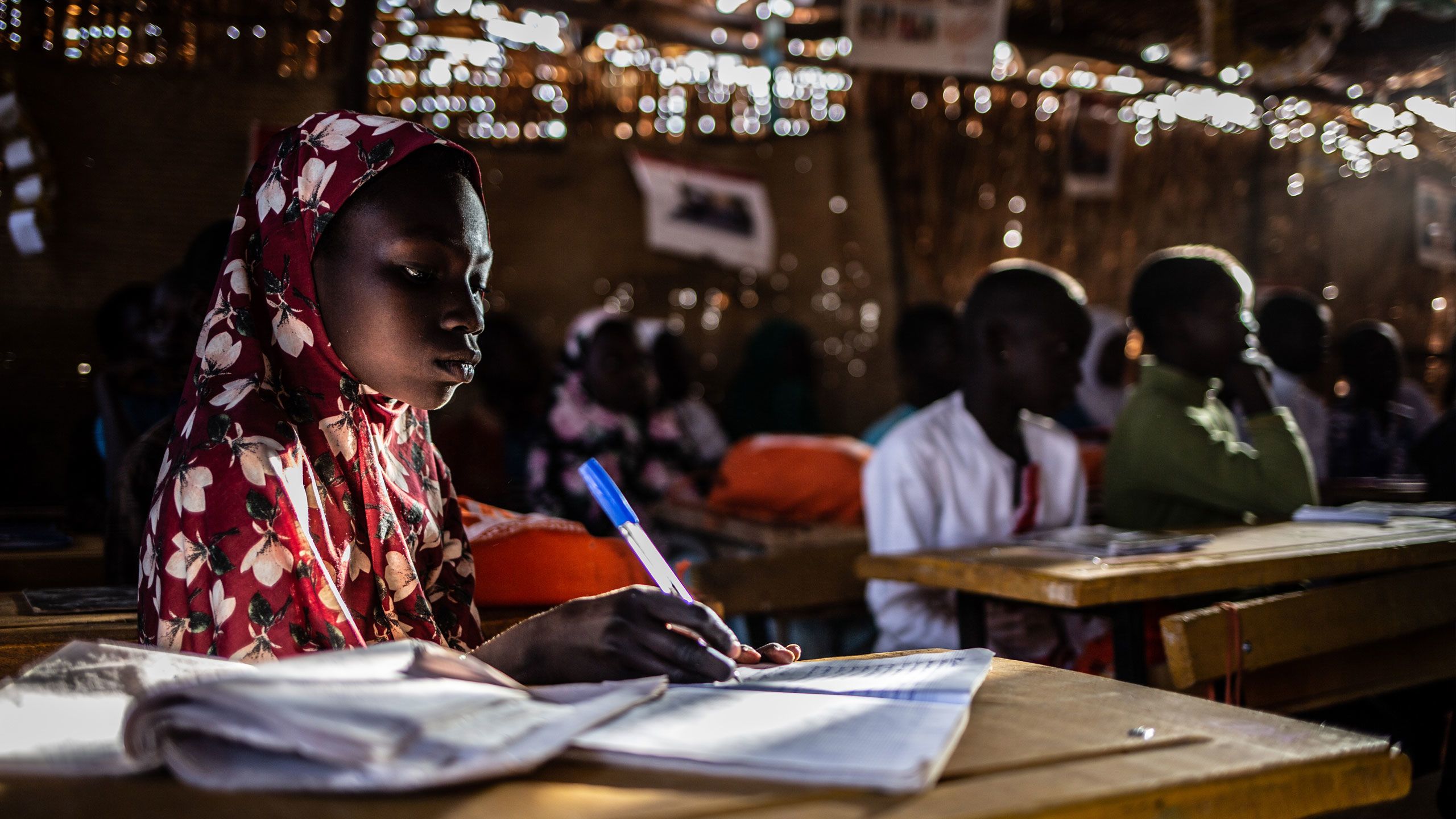

Participants from UN, international organisations and civil society organisations at a training session on gender in humanitarian action in Maiduguri, Nigeria, in November 2021. (Photo: UN Women)
Participants from UN, international organisations and civil society organisations at a training session on gender in humanitarian action in Maiduguri, Nigeria, in November 2021. (Photo: UN Women)

Senior Gender and Capacity Building Specialist, Diane Felicite Magnikeu Ngamo and her colleague from UN Women at a focus group discussion with leaders from a women’s group for internally displaced people in N'Goutou Koumbwa, Chad. (Photo: NORCAP)
Senior Gender and Capacity Building Specialist, Diane Felicite Magnikeu Ngamo and her colleague from UN Women at a focus group discussion with leaders from a women’s group for internally displaced people in N'Goutou Koumbwa, Chad. (Photo: NORCAP)
Strengthening access and inclusion in Nigeria
NORCAP provided institutional development and governance training to civil society organisations in Nigeria. We led a self-assessment of organisational capacity and mapping of the civil society organisations. This helped to increase the potential number of partners for the Nigeria Humanitarian Fund and contributed to doubling the World Food Programme (WFP)’s local partnership base.
Forty local organisations now also have access to the UN’s flight service in Nigeria, making it possible for them to reach communities where access is difficult because of insecurity and insufficient infrastructure.

Participants from UN, international organisations and civil society organisations at a training session on gender in humanitarian action in Maiduguri, Nigeria, in November 2021. (Photo: UN Women)
We also supported a donor group working to bolster the involvement and influence of local organisations in humanitarian work in the country. The group, which is co-chaired by a local organisation led by women, secured access to humanitarian services for people who had previously not been reached because of language barriers.
Empowering civil society in Niger
“Thank you NORCAP for your great and appropriate support. It has positively impacted our organisation to become reliable and effective which has greatly impacted the lives of the vulnerable people of the Diffa region..”
― Goni Issoufou, president of WARAKA, national NGO, Niger.
In Niger, we worked with 21 local partners, civil society organisations and non-governmental organisations as well as women’s and youth associations on planning and implementing humanitarian response programmes in the Diffa region.
We provided advice in several areas, including how civil society partners could access new funds, form strategic plans, improve internal governance and establish monitoring systems. Our partners were better prepared as a result to participate in humanitarian response coordination meetings with other national and international organisations.
They also increased their visibility by taking part in international conferences and developing their advocacy and communications expertise, including the effective use of social media. Some partners were able to access new funds for the first time, collectively securing nearly NOK 8 million ($914,000) for various projects.
‘’At the end of the training on monitoring and evaluation, [we] really understood the need to have tools and systems for monitoring and evaluation in order to better implement projects and to have reliable and well-managed data.’’
― Abdulaye Hassan, coordinator of Initiative du Développement-Vert, national NGO, Niger
Supporting stabilisation locally in Chad
We continued to support the Regional Stabilisation Strategy (RSS) in Chad, an overarching regional approach to dealing with the causes of social and economic inequity as well as the drivers of violent extremism and conflicts in the Lake Chad region.

Senior Gender and Capacity Building Specialist, Diane Felicite Magnikeu Ngamo and her colleague from UN Women at a focus group discussion with leaders from a women’s group for internally displaced people in N'Goutou Koumbwa, Chad. (Photo: NORCAP)
NORCAP first engaged with the RSS in 2019. Through our support, local organisations have taken greater ownership of the response to a crisis, including the planning and delivery of support to affected communities.
Challenges and way forward
While we made headway in 2021 with our work to strengthen civil society organisations in the Lake Chad region, there were also challenges.
“As local and national organisations take on a larger role and gain more influence, they will hopefully see more funding come their way,” says Sissling. “Conversely, international organisations may see a decline in their influence and funding. This could lead to a struggle for power that undermines the willingness for local engagement.”
Grand Bargain
The Grand Bargain is a unique agreement between some of the largest donors and humanitarian organisations which have committed to get more means into the hands of people in need and improve the effectiveness and efficiency of the humanitarian action.
Building anti-trafficking capabilities in Greece
Photo: Giorgos Papadimitriou, site management support adviser at the Eleonas site in Athens. (Photo: Gabriel Babsi)
NORCAP last year continued to support Greek authorities’ efforts to protect human trafficking survivors arriving in the country, which has received more than 1.2 million refugees and migrants since 2014.
As head of our anti-trafficking project in Greece, Angeliki Serafeim has worked with the authorities since 2018 to train first-line responders such as reception-centre employees and staff processing asylum applications in how to identify trafficking survivors, protect their rights and ensure they get the support they need. Angeliki has also supported non-governmental organisations in handling legal issues for trafficking survivors.
The case of one male survivor made a particular impression on her last year. He had been exploited as a child in Greece 20 years earlier and had no legal residence permit. Angeliki was able to help rectify his situation.
“I collaborated closely with the man’s lawyer, sharing my experience on how to deal with such cases,” she says. “He became officially recognised by the prosecutor as a survivor of human trafficking, giving him the right to a residence permit and the opportunity to work in Greece.”

Angeliki Serafeim, a NORCAP legal adviser. (Photo: Gabriel Babsi)
Angeliki Serafeim, a NORCAP legal adviser. (Photo: Gabriel Babsi)
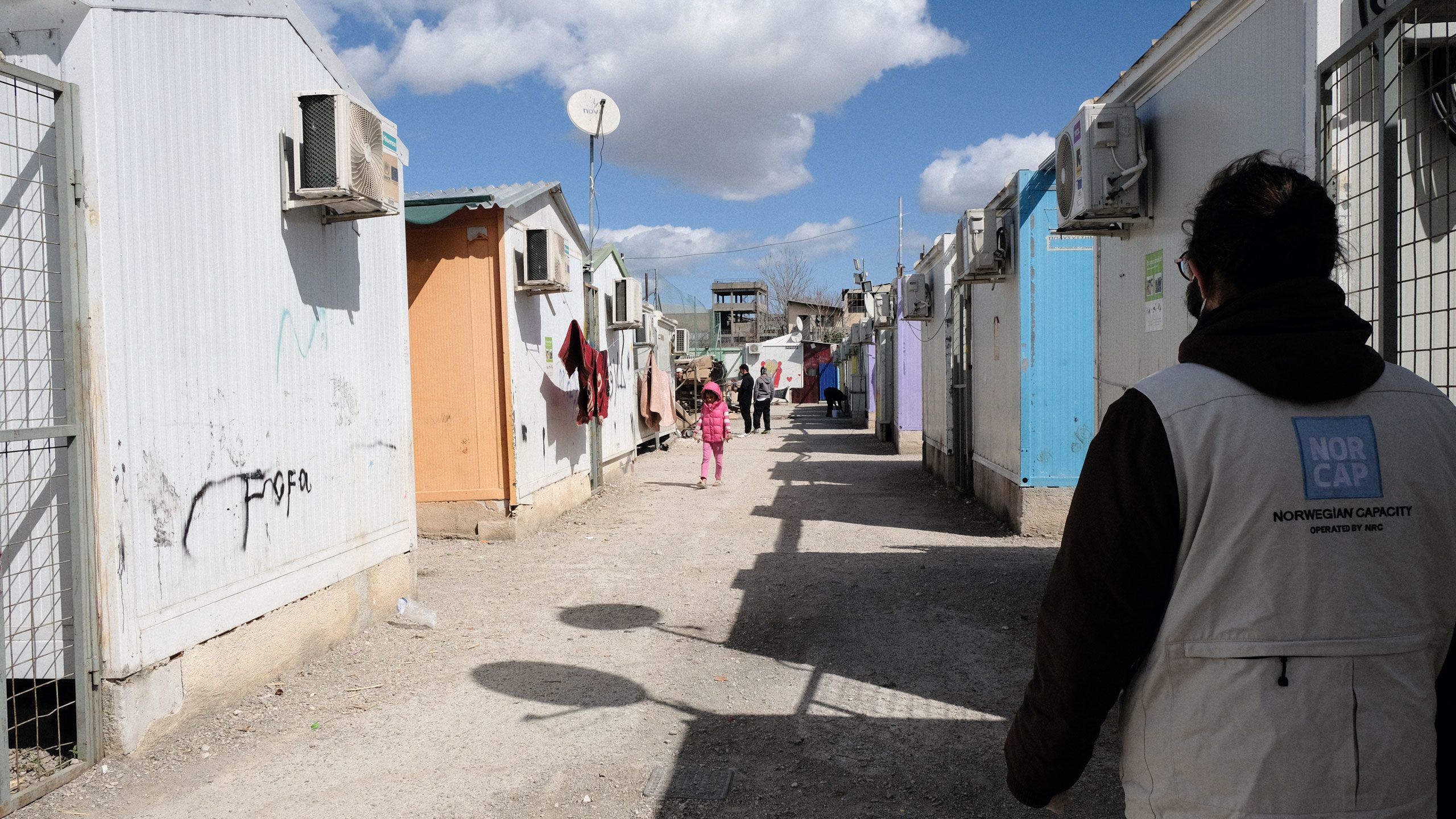
478 cases in three years
NORCAP began working with the Greek authorities in 2018 to strengthen their ability to provide dignified reception conditions and implement international standards to protect refugees and migrants arriving in the country. Vulnerable groups, such as unaccompanied minors and survivors of human trafficking, have been a particular focus.
Trafficking cases are registered in Greece’s national referral mechanism, which was set up in 2019 with our support. Last year 156 cases were registered, bringing the total to 478. The National Centre for Social Solidarity (EKKA) is responsible for handling cases.
“NORCAP has been our closest partner since we started to prepare the national referral mechanism,” says Theodora Gianni, who is responsible for its management team at EKKA. “The experts deployed in our organisation contributed to building robust relationships with all relevant actors on a national and international level. Their expertise and experience were an asset to our team, as their main role is to support field professionals in their efforts to identify survivors of human trafficking and offer victim-centred protection services.”
The project is funded by European Economic Area and Norway grants and the fund is operated by ΣΟΛ Crowe and HumanRights360.
Increasing accountability to affected people in Afghanistan
Photo: A focus group discussion in a formal settlement in the province of Herat. Carolyn Davis (in the middle to the left) are sitting next to Karima Sorkhabi, a national gender and social development specialist, and a member of the AAP working group. (Photo: Wandaa/OCHA)
NORCAP in 2021 led efforts to put people affected by the crisis in Afghanistan at the centre of decision-making in the humanitarian response.
Our expert Carolyn Davis chaired the Afghanistan Accountability to Affected People Working Group (AAP WG), which includes UN agencies as well as local and national non-governmental organisations (NGOs). The group seeks to ensure that local communities are meaningfully and continuously involved in decisions that directly affect their lives, while implementing practices, policies and activities to hold humanitarians accountable for their actions.
“Strengthening community engagement has become even more crucial to ensuring effective and accountable humanitarian assistance in Afghanistan, where circumstances have significantly worsened after the Taliban’s government takeover last August,” says Carolyn, who has led the working group since 2020 as part of an assignment with the United Nations Office for the Coordination of Humanitarian Affairs.
More than 24 million people, or over half the country’s population, needed humanitarian assistance to survive at the end of last year. That’s an increase of 30 percent from the year before. The Taliban’s takeover in August caused a cash crunch that further weakened an already fragile economy, leading to rising food prices, fewer jobs and lower salaries. Overstretched health services struggled to cope with the Covid-19 pandemic and other disease outbreaks. Simultaneously, women’s and girls’ rights were severely restricted throughout the country.


Carolyn Davis (right) with NORCAP expert Fernanda Baumhardt-Grojean. (Photo: IOM/Amanda Nero)
Carolyn Davis (right) with NORCAP expert Fernanda Baumhardt-Grojean. (Photo: IOM/Amanda Nero)

Carolyn Davis (right) with NORCAP expert Fernanda Baumhardt-Grojean. (Photo: IOM/Amanda Nero)
Three sub-groups
The first working group meeting was attended almost entirely by UN agencies and international NGOs. By the end of the year, they had been joined by about 20 national NGOs. Many local NGOs also joined their international counterparts to map AAP activities in the country.
“We have had a particular focus on empowering and building the capacity of local humanitarian responders in Afghanistan, which has resulted in greater community engagement,” says Carolyn. “We aim to expand AAP activities to more communities across the country and plan to hire an Afghan national as the next AAP working group coordinator.”
The working group had three sub-groups focused on key accountability priorities last year:
- Improving feedback-complaint-response mechanisms so as many people as possible are able to comment on humanitarian organisations’ performance, receive a reply and have their views and suggestions put before the Humanitarian Country Team
- Coordinating the provision of information on humanitarian assistance in people’s preferred languages and formats
- Risk communication and community engagement, where the focus is on providing standardised and up-to-date information on measures people can take to keep themselves safe from disease and other health risks
Restrictions on women and girls
Carolyn last year held workshops with marginalised women in the Herat and Bamyan provinces on developing their own feedback-complaint-response system. She also trained national staff with OCHA and other UN agencies to serve as AAP focal points in regional offices to promote accountability skills and activities in local communities.
Our efforts to strengthen female involvement became more challenging after the Taliban seized power and imposed strict restrictions on women’s rights. This included confining women to their homes unless accompanied by a male family member, denying them access to work and barring girls from secondary education in most parts of the country.
“It has become difficult for women, including aid workers, to get involved in designing, implementing and evaluating humanitarian and development projects in Afghanistan,” says Carolyn. “It has also become more challenging to gain access to feedback and response channels as well as aid information and services.”
Climate action
Finding new ways to scale up climate action
―
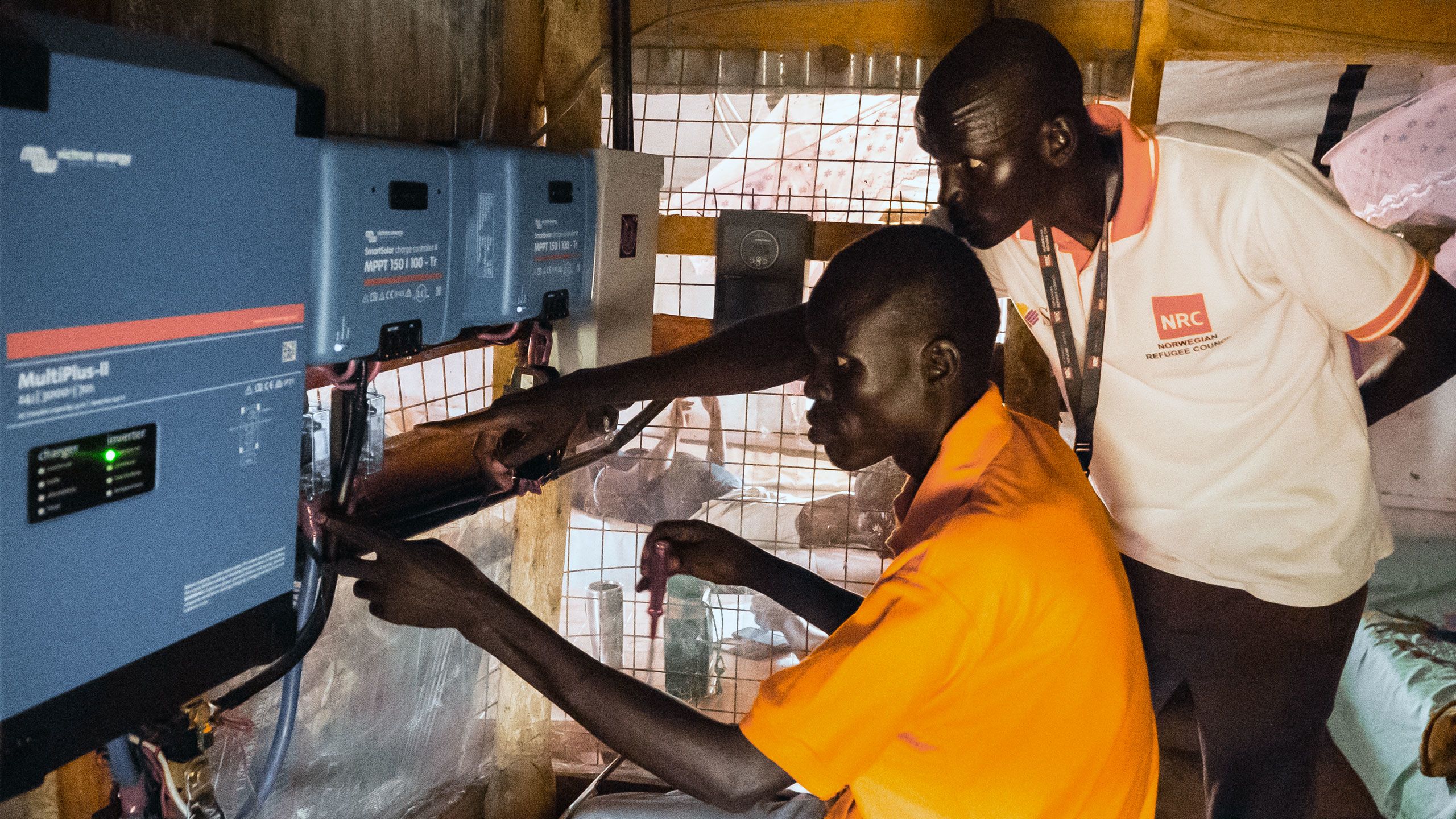
NORCAP focused on increasing access to clean energy and better enabling vulnerable communities to adapt to climate change in 2021.
Mitigating the impact of climate change on vulnerable communities is a key focus for NORCAP. In 2021 we had 65 climate and clean energy experts working with international and national organisations and authorities in 24 countries to promote this goal.
We helped strengthen the ability of vulnerable communities in Africa and the Middle East to manage climate change risks. This included developing a digital tool that provides live and easily understood weather data for East Africa, helping farmers prepare for changing weather conditions. We expanded the use of solar panels for energy as an alternative to diesel-generators and other polluting forms of energy in Africa and the Middle East. We also explored new funding methods for projects to provide more clean energy to refugees and other displaced people.
Providing reliable climate information
The ability to predict and prepare for climate-related events such as floods, droughts and pest-infestations is essential to communities’ resilience. A key challenge is ensuring that reliable climate information reaches remote rural communities, enabling people to take mitigative action before disaster strikes. We work to make sure that accurate, timely, accessible and understandable climate information is available for all parts of society, from policymakers to local communities.
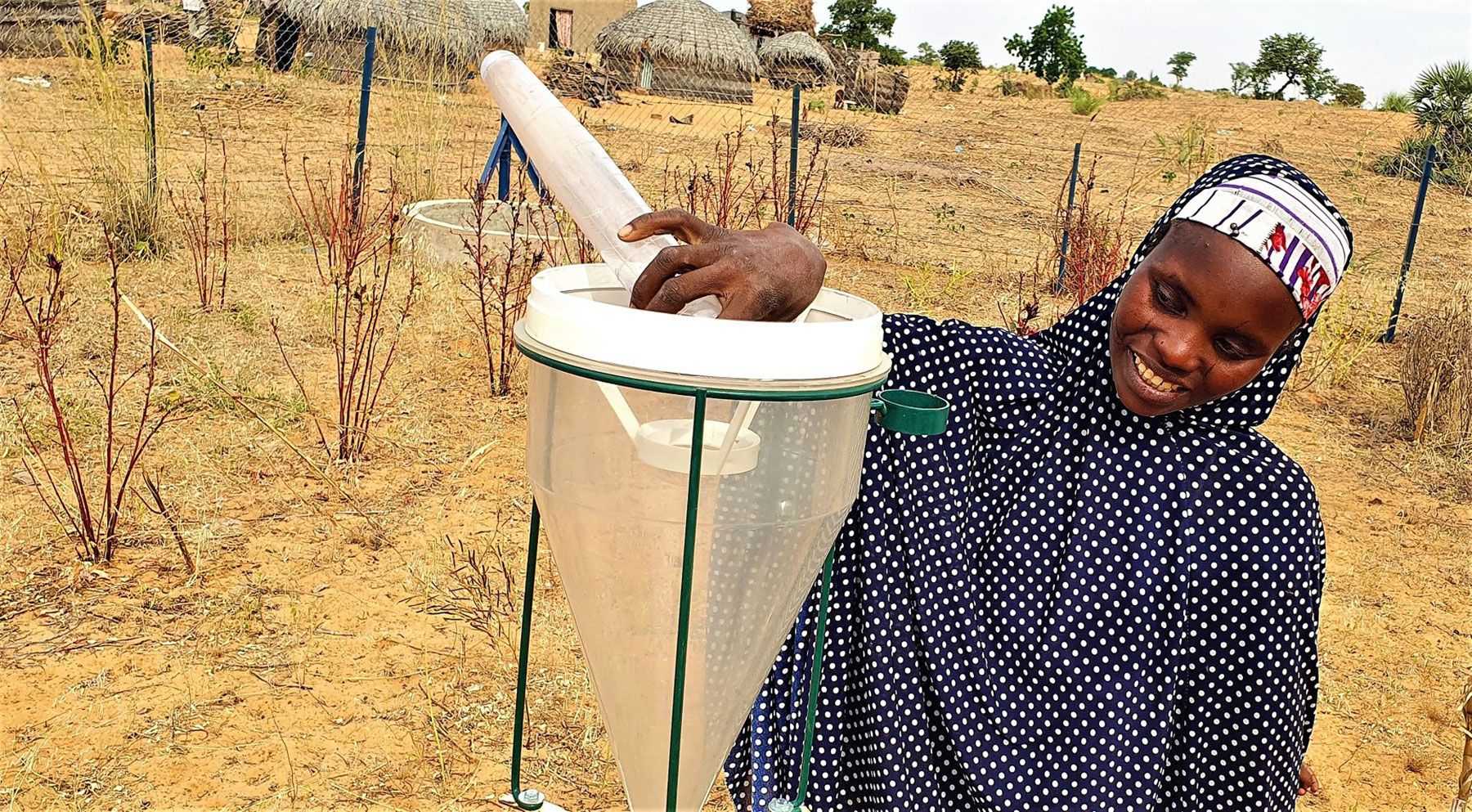
Rabi Alassane, Niger's first female rainfall observer in the Dan Fountoua village in Dogo, Zinder region. (Photo: Mikaïl Issa/NORCAP)
Rabi Alassane, Niger's first female rainfall observer in the Dan Fountoua village in Dogo, Zinder region. (Photo: Mikaïl Issa/NORCAP)
Our geographical focus for this work in 2021 was eastern and western Africa, where our Climate Services Project played a vital role in communicating forecasts to farmers, fishermen and pastoralists whose livelihoods depend on weather and climate conditions. The project, which we started in 2015, also conducted assessments to improve understanding of the potential impacts of climate change on livelihoods.
Last year we also played a critical role in developing the East Africa Hazards Watch with our partner, the Intergovernmental Authority on Development’s Climate Prediction and Application Centre, ICPAC.
Hazard Watch in East Africa
About 90 percent of humanitarian disasters in East Africa are related to weather. To combat this, NORCAP and ICPAC last year rolled out the East Africa Hazards Watch, a ground-breaking monitoring system that enables local communities to better prepare for extreme weather.
The system is the first of its kind to be both publicly available and free of charge in Africa, where many people rely on agriculture for their livelihoods. It provides a real-time overview of climate and weather in the region, as well as information on potential impacts on local communities.
Visit the East Africa Hazards Watch here
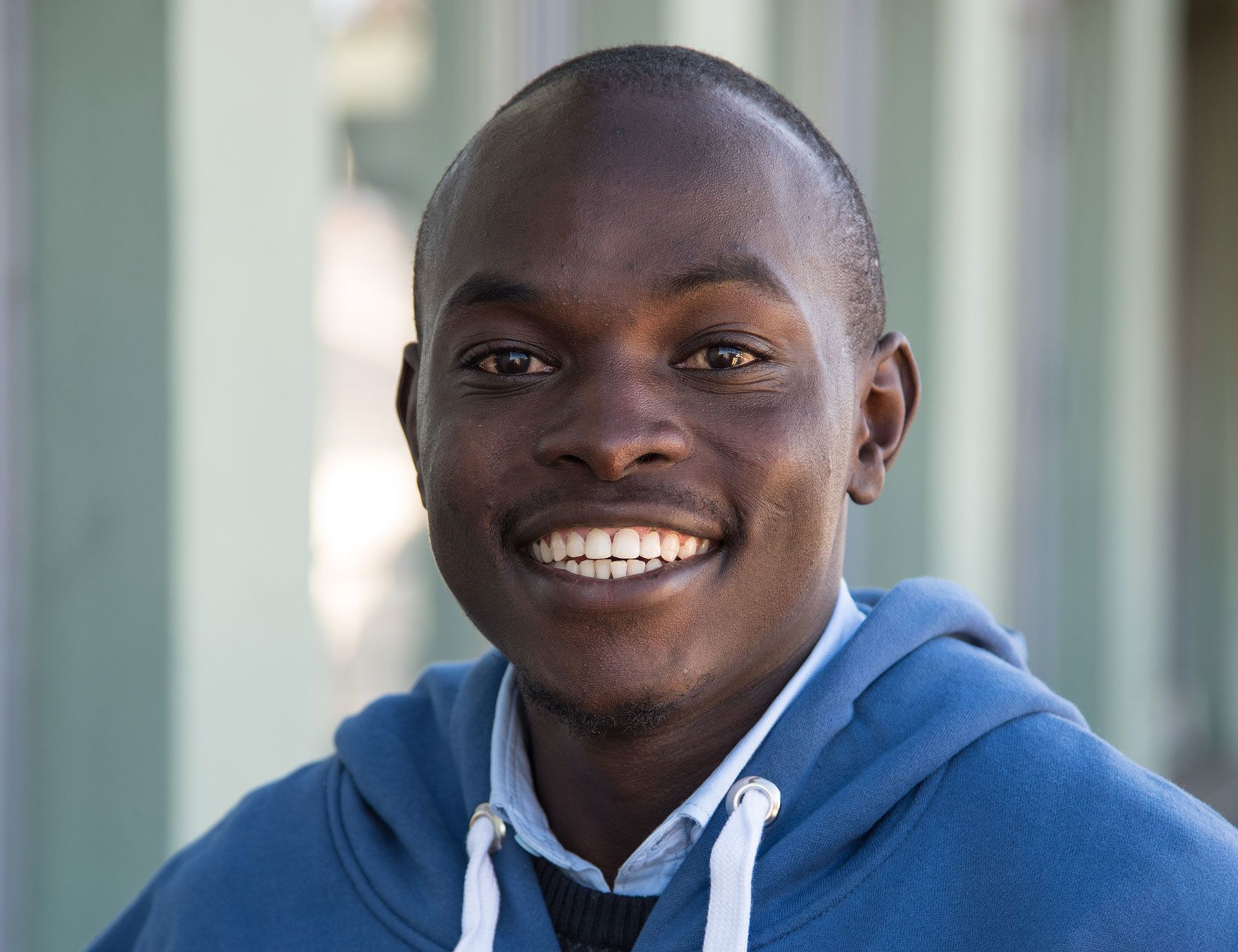
Erick Otenyo, a NORCAP web-programmer. (Photo: NRC/Ingebjørg Kårstad)
Erick Otenyo, a NORCAP web-programmer. (Photo: NRC/Ingebjørg Kårstad)
Our experts Erick Otenyo and Marta Baraibar were among the first involved in the project, starting at the concept development phase.
“There was an urgent need for an early warning system that would provide communities in East Africa with the information they need to prepare for hazardous weather events,” says Erick, a NORCAP digital programmer. “The system shows climate and weather information that has been collected by National Meteorological agencies across the region and distributed periodically to ICPAC where its being processed and published online,” says Erick.
Erick was responsible for the technical development of the system, while Marta, a NORCAP climate services expert, made sure the information generated is easily understood and relevant to users.
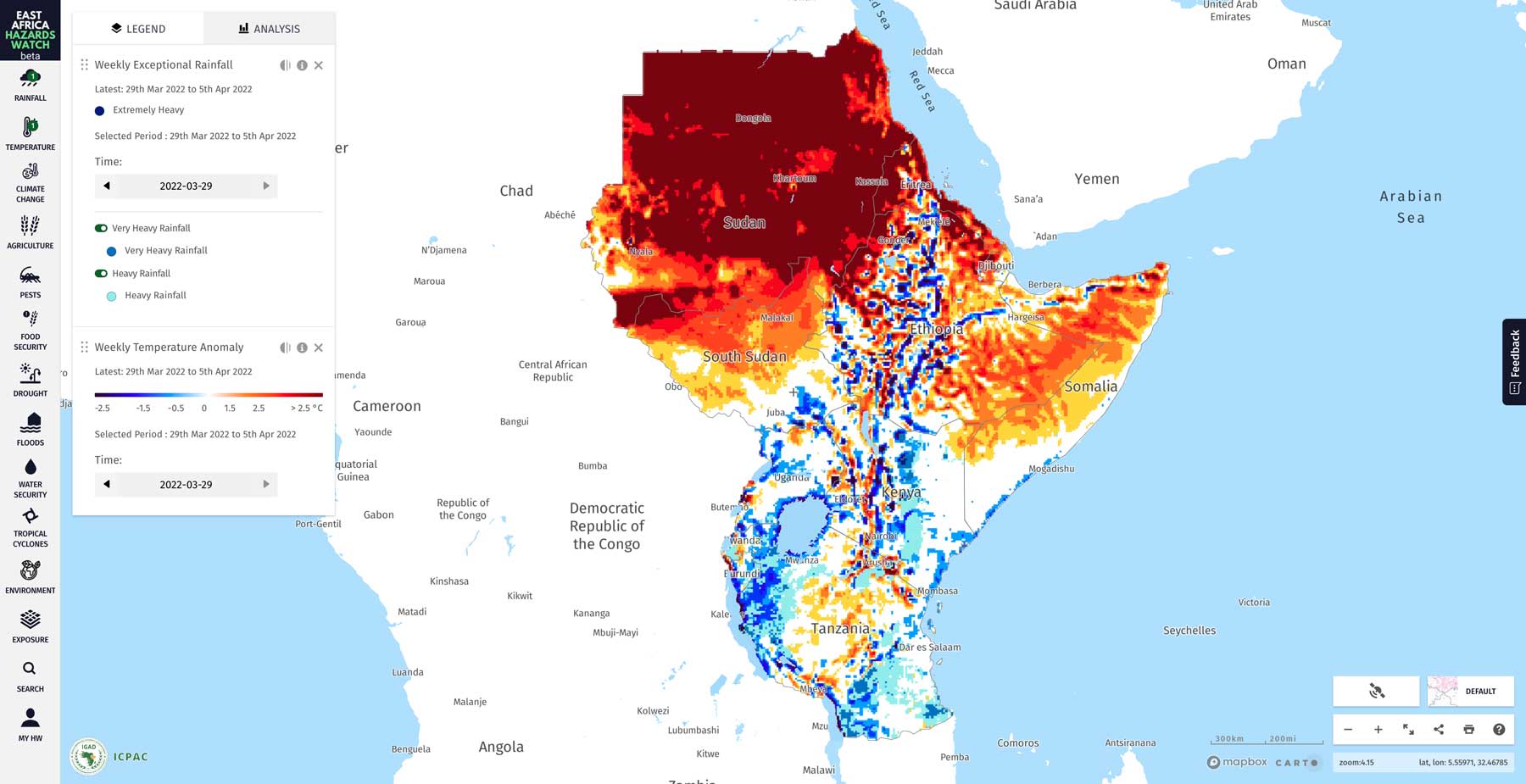
Screenshot from East Africa Hazards Watch
Screenshot from East Africa Hazards Watch
7,000 users
ICPAC has registered 7,000 users of the system since it was introduced in June 2021. This includes organisations such as Doctors Without Borders, national meteorological and hydrological services, the UN’s mission in South Sudan, government offices and local news media.
The information is used by national and local news media in TV and radio broadcasts that reach even the most remote communities, enabling people to better prepare for changing conditions. The information is also used by authorities in their decision-making.
“Climate change is causing an increase in cyclones, floods, droughts and other extreme weather in Africa, making it more important than ever to have climate change projections that enable stakeholders to make better decisions,” says Marta Baraibar. “The data we collect gives authorities’ greater insight into the effect of weather on local communities, enabling them to prepare for and reduce the impact on lives and infrastructure.”
Reducing risk to life
The impact of climate change is particularly severe in Africa, according to the World Meteorological Organization (WMO). Temperatures rose at a higher rate than the global average in 2020. Each flood or drought in sub-Saharan Africa increased food insecurity by between five and 20 percentage points and extreme events including flooding, long-term droughts, and cyclones forced more than 1.2 million people to flee their homes across the continent.
“Weather and climate extremes affect agriculture, water, energy, health, transport and many other sectors in the region,” says Erick. “An example of this is the increased rainfall and subsequent floods caused by the El Niño weather phenomenon. To reduce the risk to life and properties, we need to access forecasts, data and information fast. East Africa Hazards Watch ensures we can do this.”
Future potential
We started developing the system in 2020 at ICPAC’s head office in Kenya. The project has since expanded, with 17 employees in 2021 and the potential for further development.
“We are in dialogue with WMO’s regional office for Africa on how to develop the system to meet specific needs of national metrological and hydrological services in the region as they are central in delivering climate services,” says Erick. “We are also looking into potentially developing the system for use in other parts of Africa.”
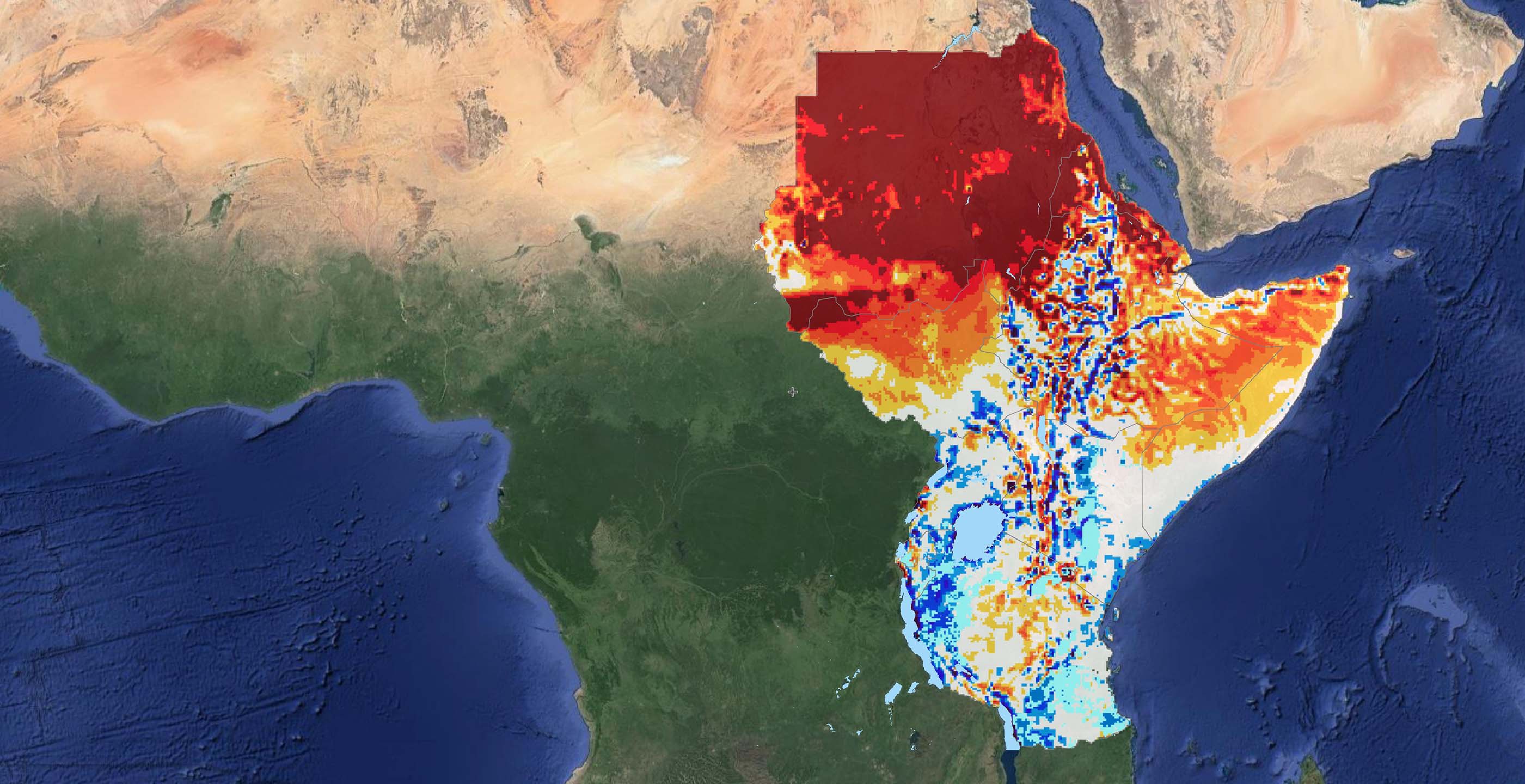
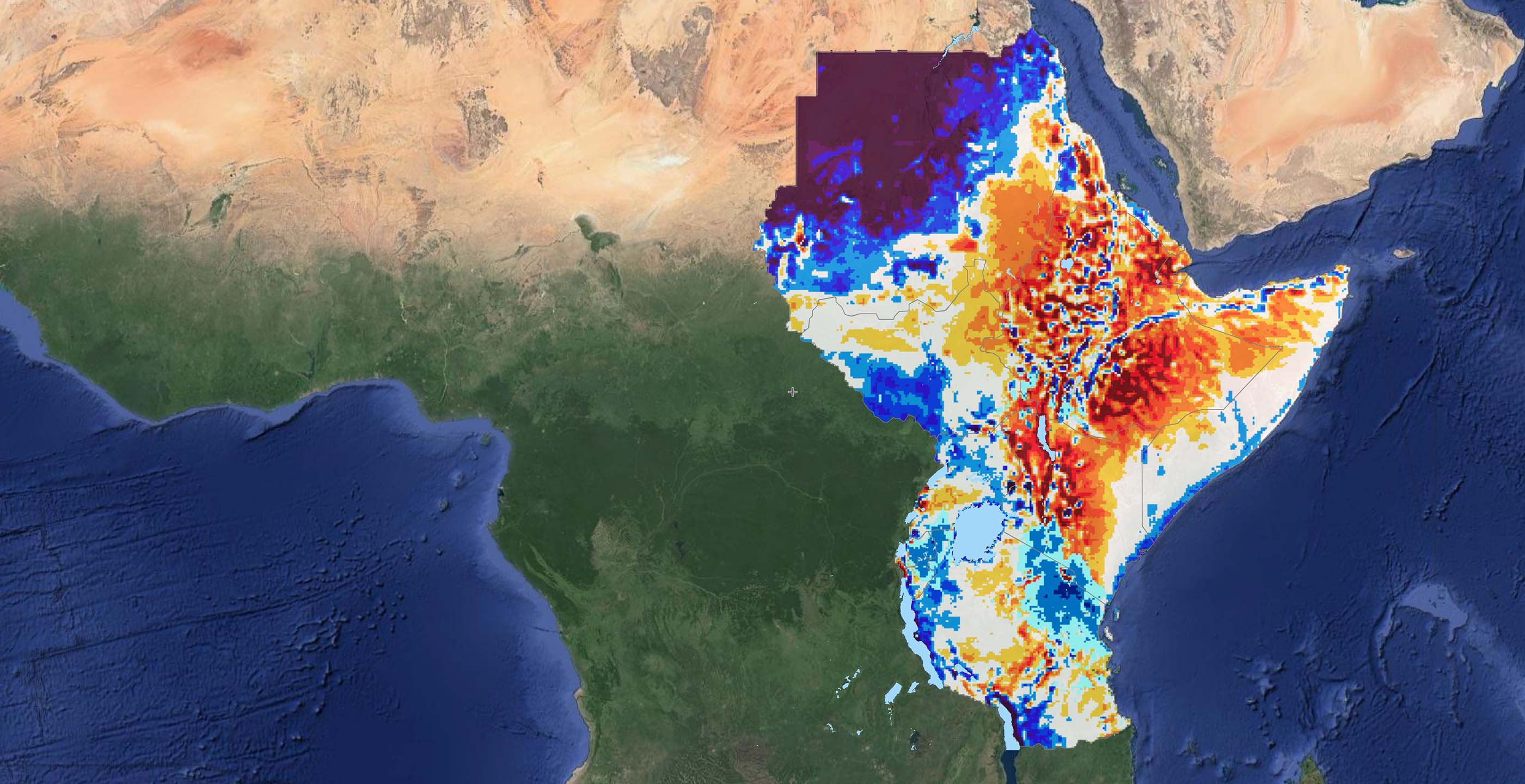
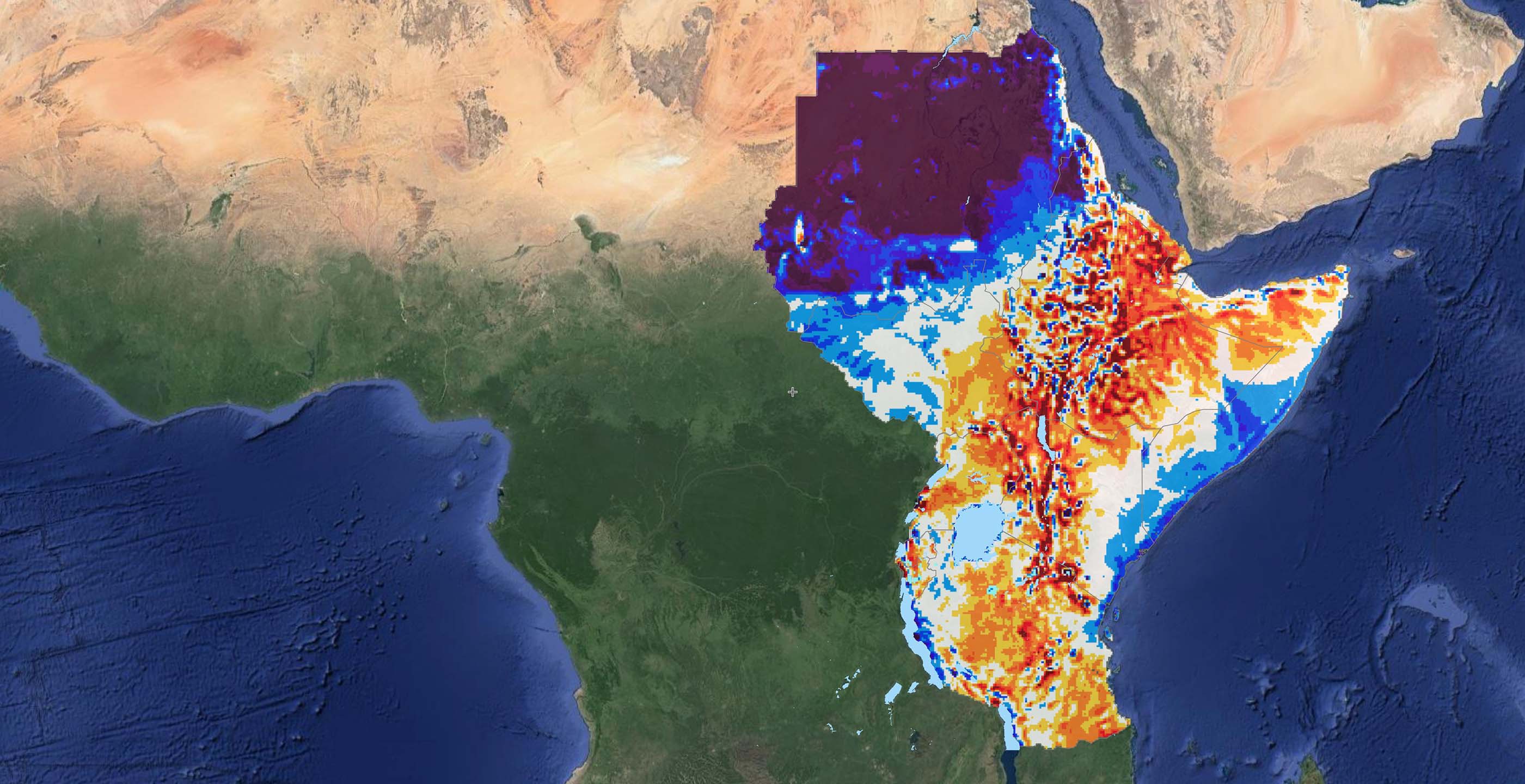
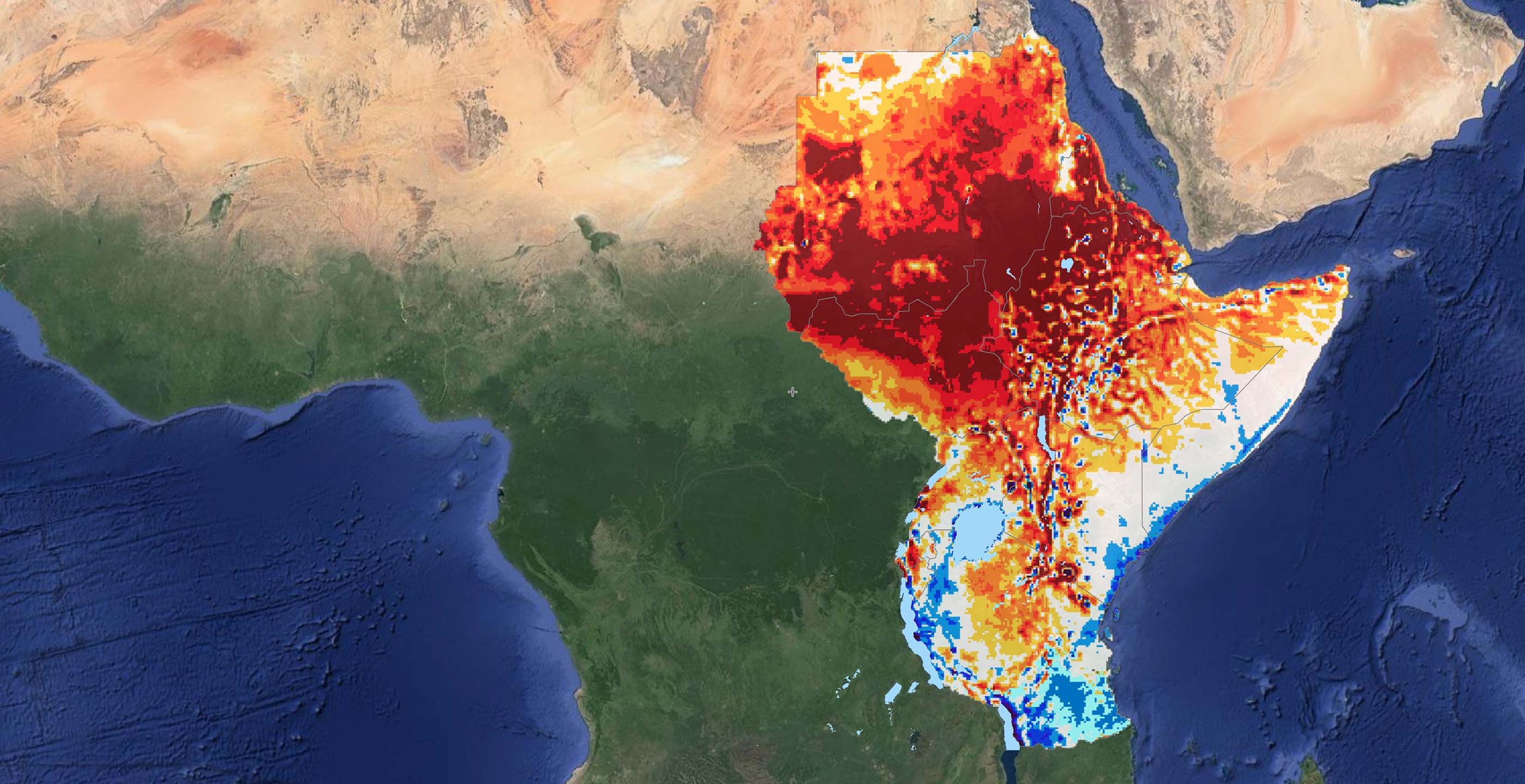
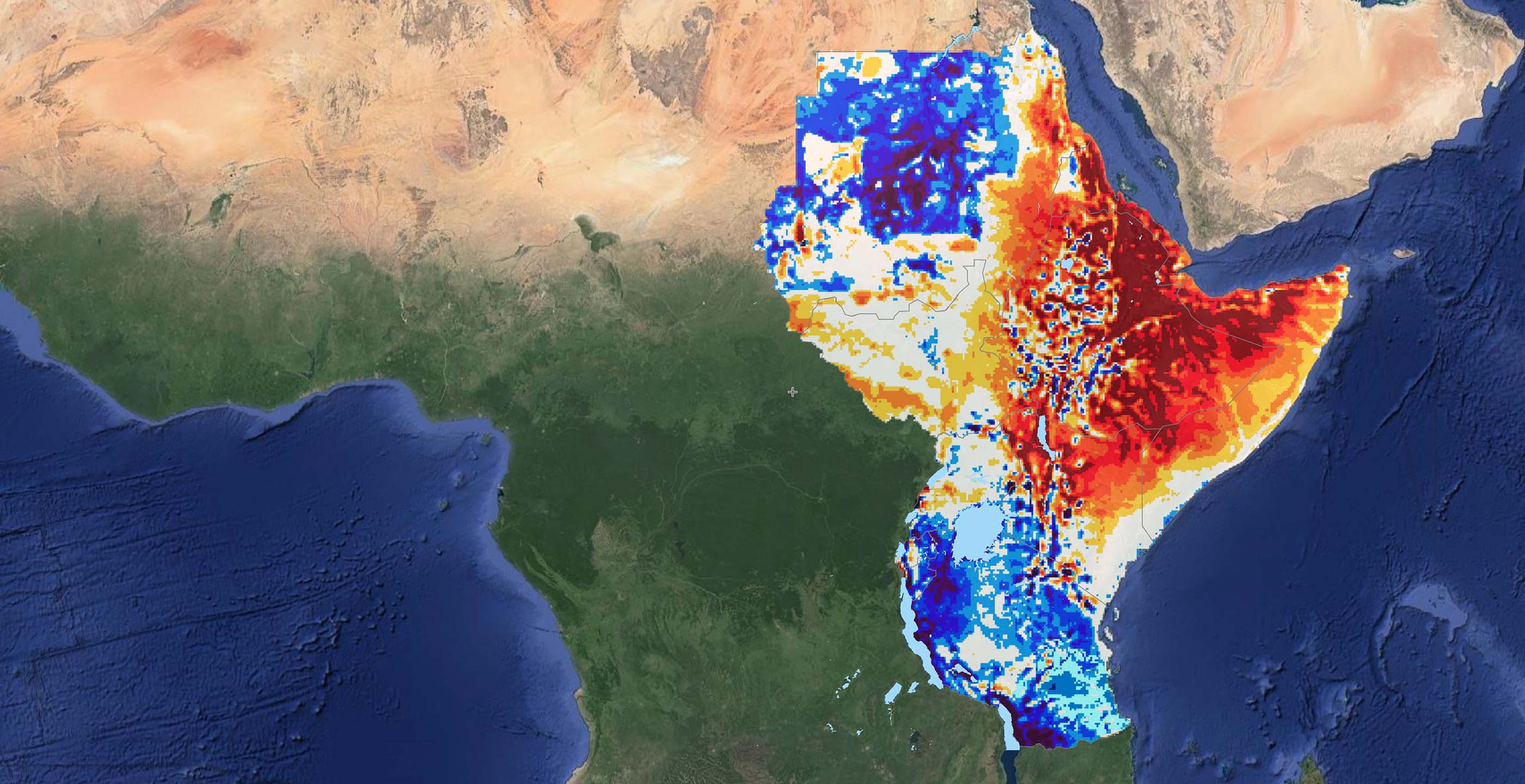
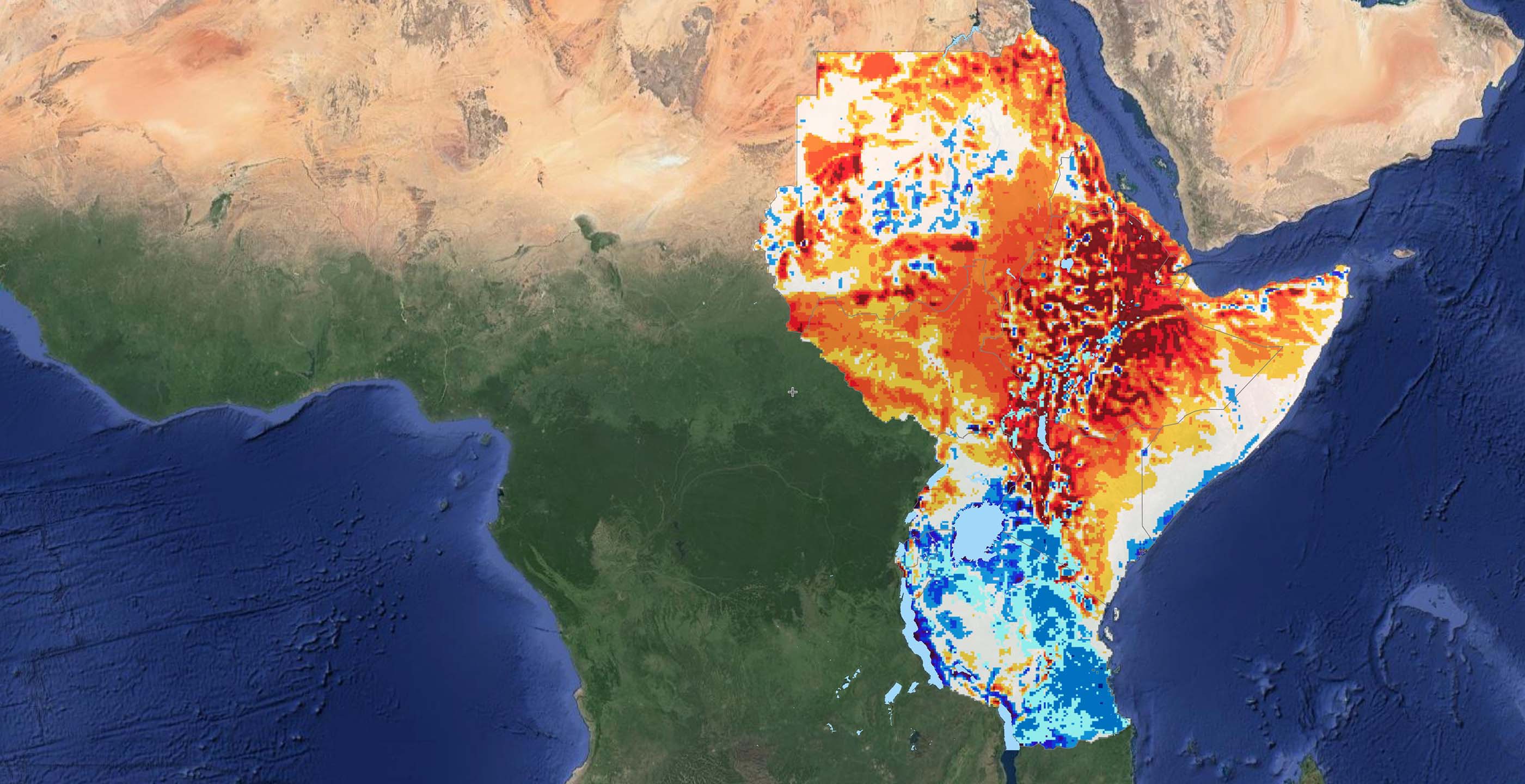
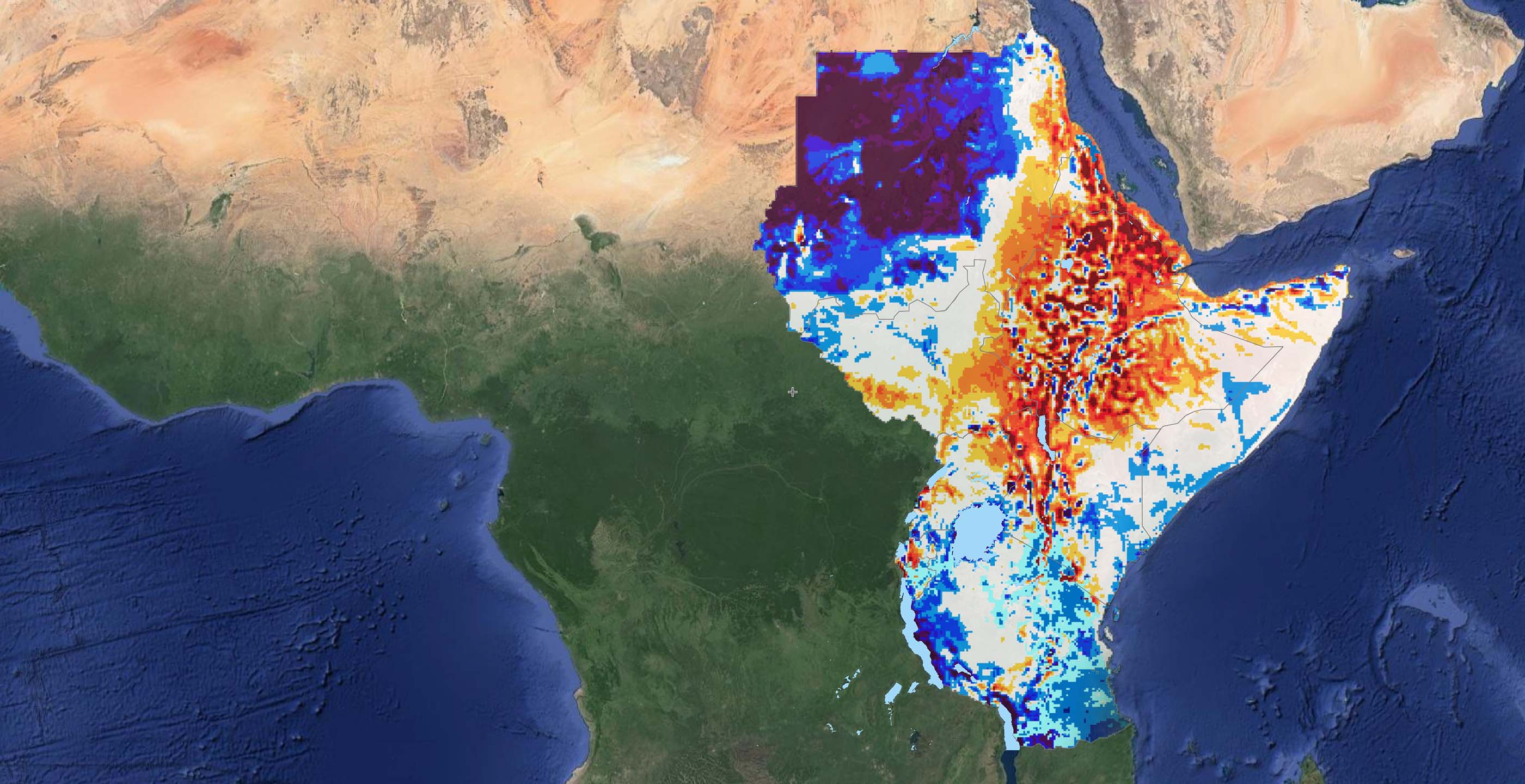

New solar panels being cleaned for optimal results by local volunteer Michael Gatluak at the Norwegian Refugee Council's office in Mankien, South Sudan. (Photo: Iban Colon/NORCAP)
New solar panels being cleaned for optimal results by local volunteer Michael Gatluak at the Norwegian Refugee Council's office in Mankien, South Sudan. (Photo: Iban Colon/NORCAP)

NORCAP energy expert, Mark Gibson. (Photo: NRC/Beate Simarud)
NORCAP energy expert, Mark Gibson. (Photo: NRC/Beate Simarud)
Exploring new ways to fund clean energy projects
NORCAP initiated a study in 2021 exploring new ways of funding projects to provide clean, reliable and affordable energy, a basic resource that 80 percent of the world’s displaced people lack.
The study was conducted in collaboration with the Global Platform for Action (GPA)’s coordination unit. It found that traditional grant-based funding typically provides too short durations for clean energy projects, which tend to require longer-term investments. The study recommended that the humanitarian, development and peacebuilding sectors consider alternative funding.

New solar panels being cleaned for optimal results by local volunteer Michael Gatluak at the Norwegian Refugee Council's office in Mankien, South Sudan. (Photo: Iban Colon/NORCAP)
“Millions of people who have fled their homes don’t have access to clean energy, and this can severely harm both their health and safety,” says Marte Graff Jenssen, who heads NORCAP’s climate and greening work. “That’s why it’s critical that we look at potential new ways to finance long-term clean energy projects.”
Most people living in refugee and displacement camps depend on traditional biomass such as wood, animal waste or charcoal for cooking, while diesel-powered generators are the main source of electricity for humanitarian operations. These energy sources tend to have high financial and environmental costs.
Blended financing
The study recommends looking at blended financing as an additional funding source. This involves the use of public and private funds for sustainable development projects.
“Blended financing has the potential to speed up the shift to clean energy solutions and help us meet sustainable development goals in several areas, including climate, health and clean energy,” says NORCAP’s Mark Gibson, who led the study. “It can provide the long-term and large-scale financing needed to develop the clean, reliable and affordable energy solutions that so many displaced people currently lack.”

NORCAP energy expert, Mark Gibson. (Photo: NRC/Beate Simarud)
The study provides an overview of blended finance mechanisms for projects intended to provide clean energy for people who have fled their homes because of conflict, persecution or disasters. It provides lessons learned from previous initiatives and recommendations for future undertakings.
It was one of three “green shift” reports published in January 2022. The others discuss electronic waste management and clean energy solutions in urban recovery settings. You can read the reports here:
Election observation
―
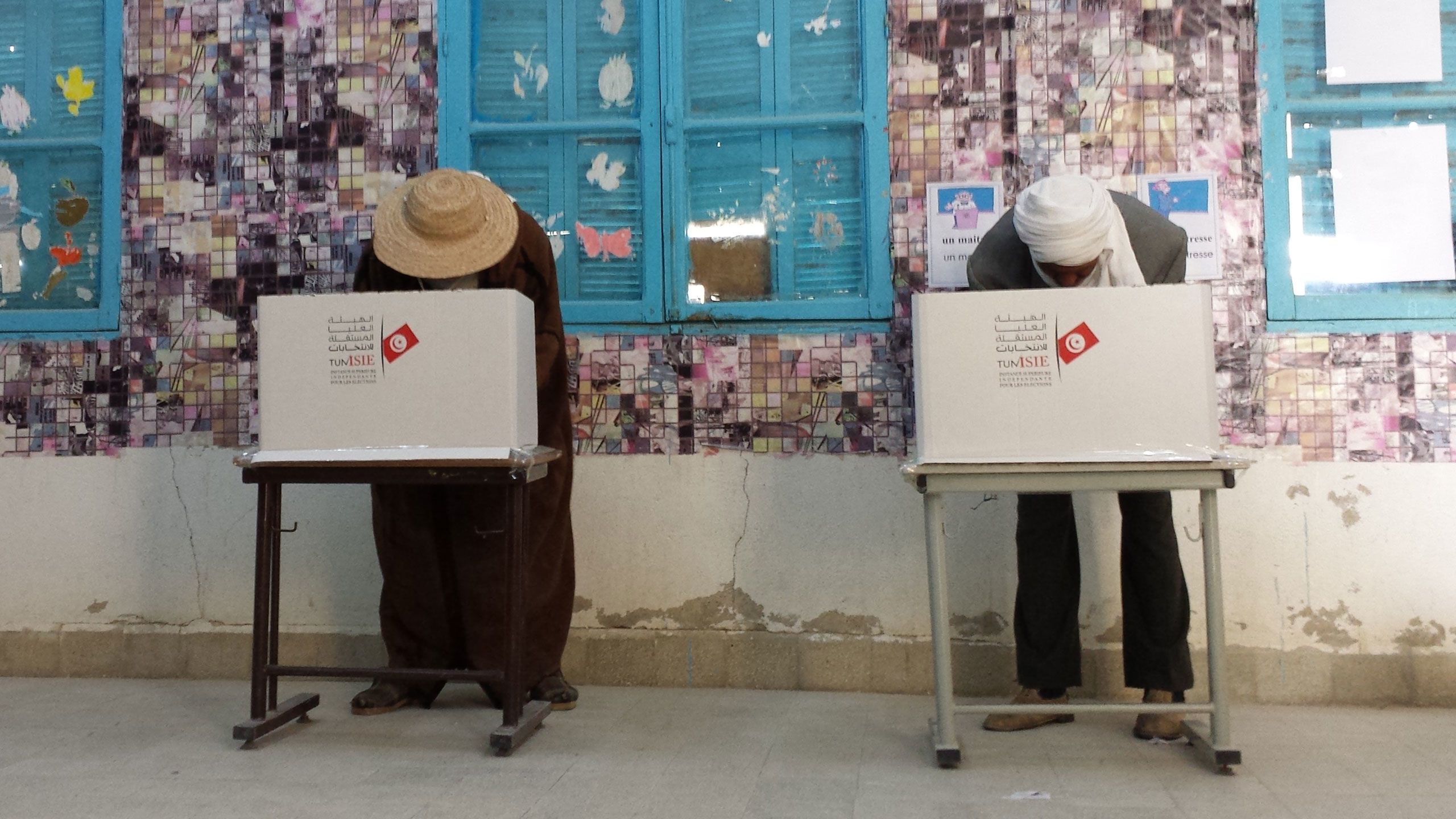
We had 47 observers monitoring 12 elections in 2021 as part of our efforts to strengthen democratic institutions and processes.
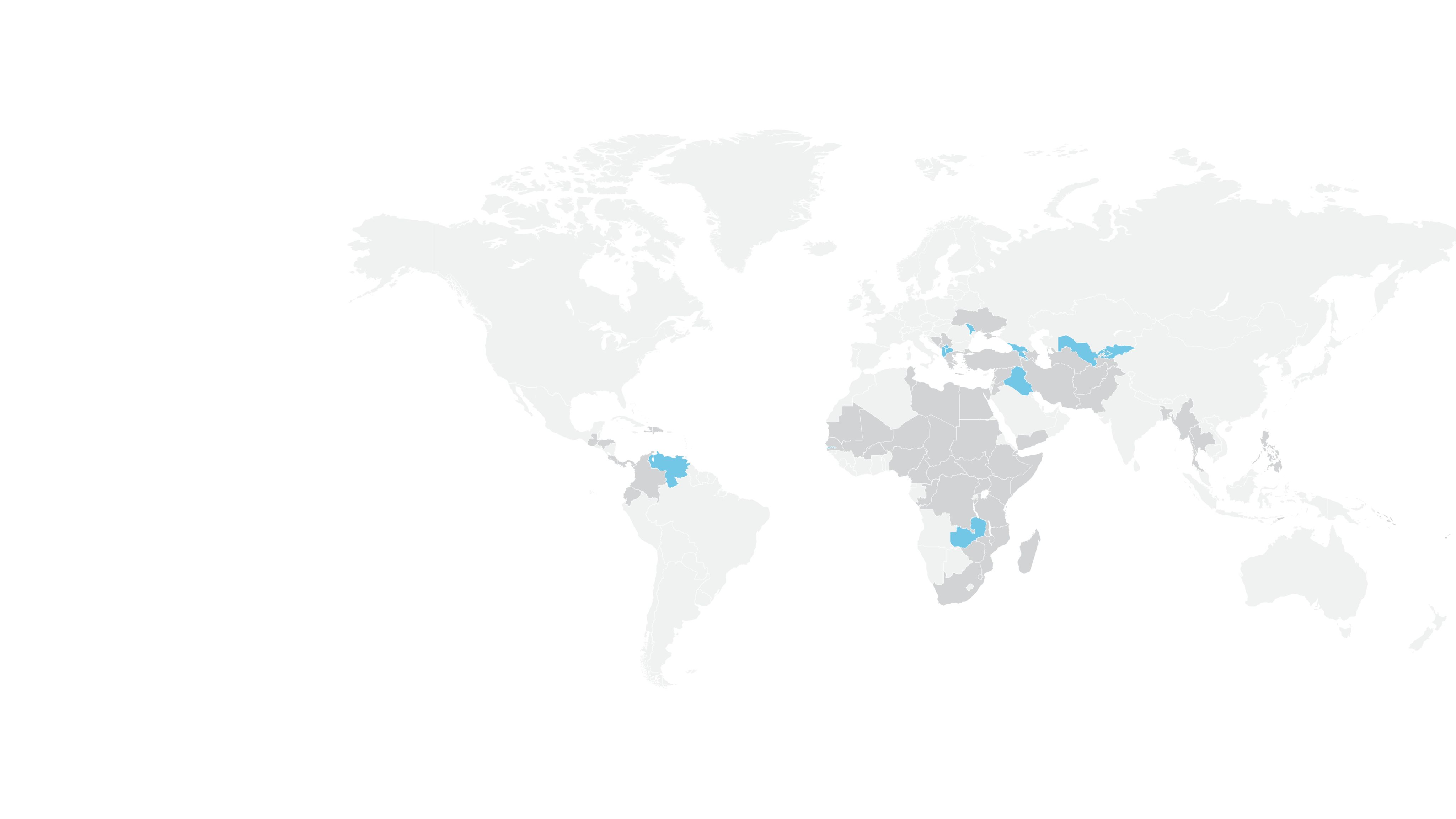
Contact
―
Collaborating with us
NORCAP collaborates with a wide range of humanitarian, development and peacekeeping partners across the globe, from multinational agencies to international organisations, from national authorities to local organisations.
We have experts in a range of areas who work together with our partners, providing advice, analyses, training and other support. We also develop new projects with partners to address critical gaps in how our global community meets the needs of people at risk.
If your office or organisation would like to discuss how our experts might support and improve your work, you would like to explore opportunities for collaboration on specific projects or thematic areas or you have any other questions about the work we do, please contact us at norcap@nrc.no.
Would you like to join our team?
The recruitment of highly qualified and motivated experts is vital for us to maintain our position as a responsive and trustworthy strategic partner. We recruit experts several times a year, and our members are diverse in terms of nationality, language skills and gender.
More information about requirements for applicants and opportunities with us can be found here: www.nrc.no/career/norcap/
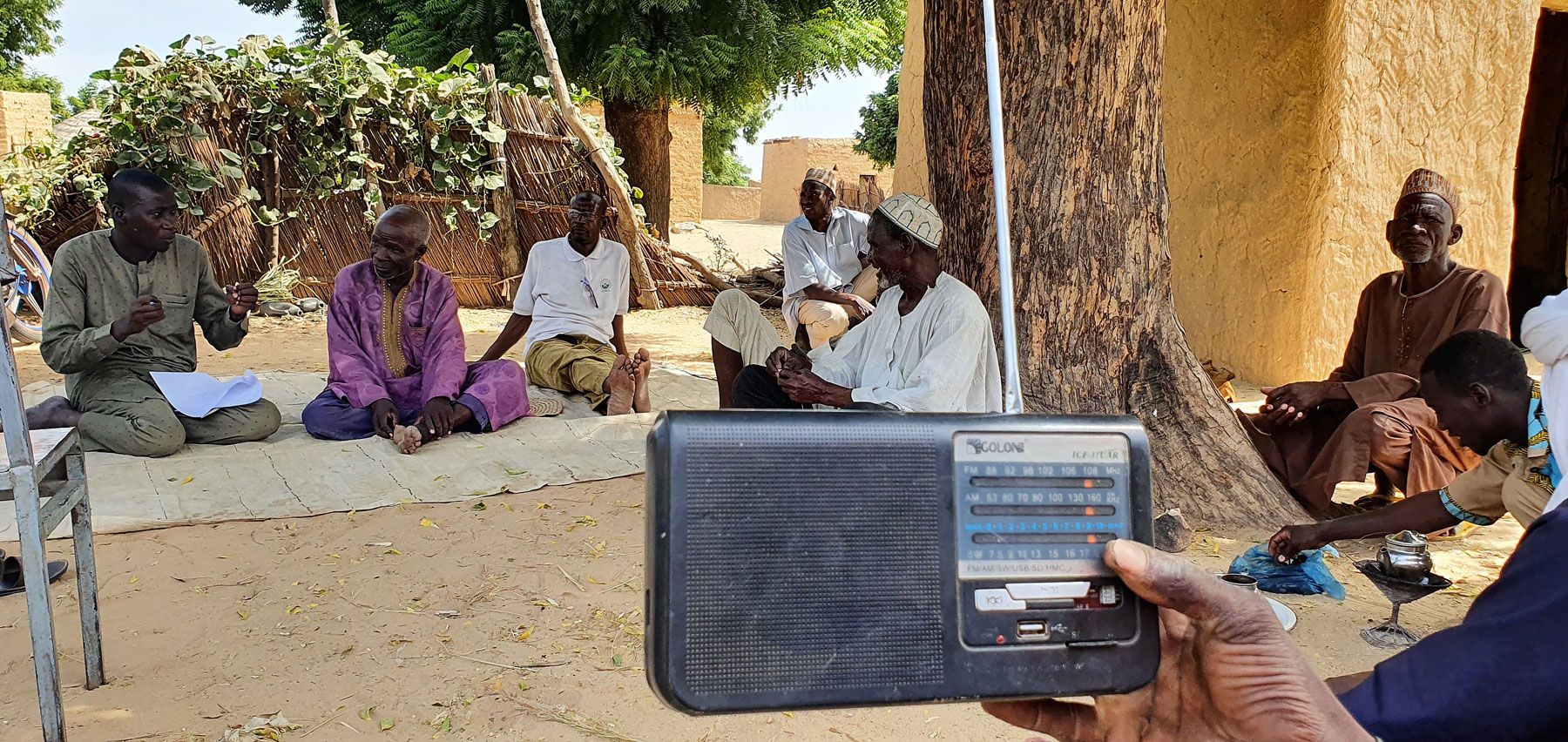
Radio is an affordable communication tool to access climate information in rural Niger (Photo: NORCAP/Mika Issa)
Radio is an affordable communication tool to access climate information in rural Niger (Photo: NORCAP/Mika Issa)
Donors
We have worked closely with the Norwegian Ministry of Foreign Affairs (NMFA) to improve aid since 1991. NFMA has provided financial support via framework partnership agreements since 2009 and the current strategic partnership agreement includes additional funds for emergency situations. In 2017, the NMFA and NORCAP established a second framework agreement with the NMFA on supporting international organisations in promoting democracy, human rights and peace (the NORDEM programme).
We also receive funding from:
- The Norwegian Agency for Development Cooperation (Norad)
- Various UN agencies, including the International Organization for Migration (IOM), Office for the Coordination of Humanitarian Affairs (OCHA), the UN Children’s Fund (UNICEF), the UN Population Fund (UNFPA), the UN Refugee Agency (UNHCR) and the World Food Programme (WFP)
- The European Civil Protection and Humanitarian Aid Operations (ECHO)
- The EU’s Directorate-General for International Partnerships – (DG INTPA, formerly DG DEVCO)
- The US Agency for International Development’s Bureau for Humanitarian Assistance (BHA)
- The US Bureau of Population, Refugees and Migration (PRM)
- European Economic Area (EEA) Grants
- The Swiss Agency for Development and Cooperation (SDC)
- The German Federal Foreign Office (FFO)
- The Swedish International Development Cooperation Agency (Sida)
- The UK Foreign Commonwealth and Development Office (FCDO)
NORCAP
Norwegian Refugee Council
Prinsens gate 2
0152 Oslo, Norway
www.nrc.no/norcap
norcap@nrc.no